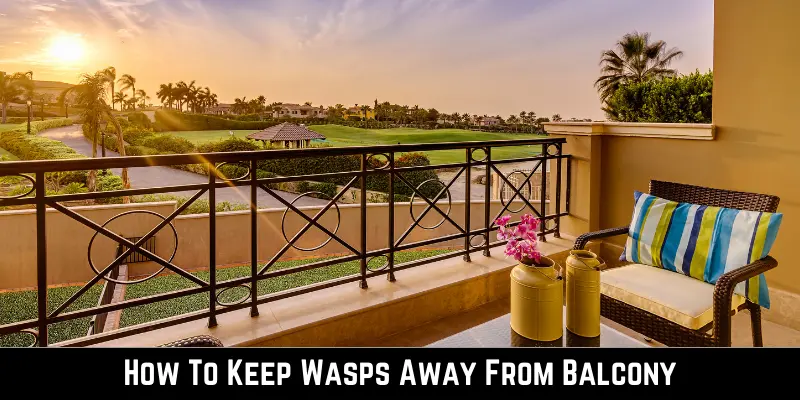Discover effective strategies to know how to keep wasps away from balcony. Dive into natural repellents, DIYs, plant deterrents, and when to call in the experts for a wasp-free space
Spending time on your balcony can be one of the most relaxing parts of your day. The fresh air, the scenic views, and the feeling of being close to nature are incomparable. But what if unwanted guests, like wasps, become frequent visitors? Keeping Wasps Away from Your Balcony: A Comprehensive Guide is here to help.
With the warmer months approaching, these pesky insects might decide your balcony is their new favorite spot. Don’t let them ruin your outdoor moments.
Why Wasps are Drawn to Balconies
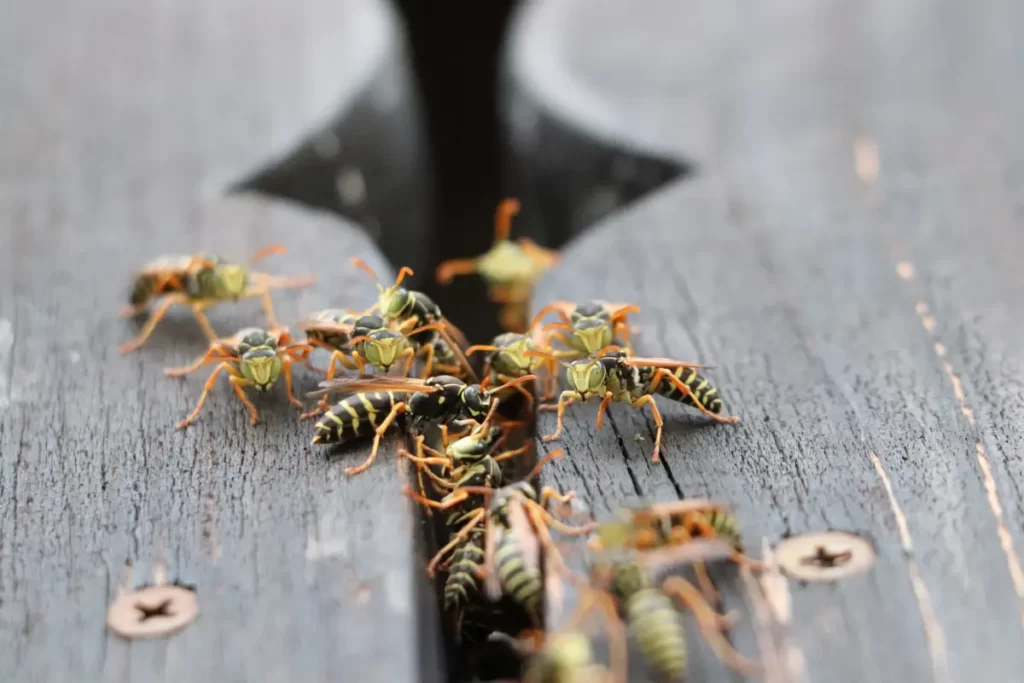
Balconies are like mini-vacation spots right at home. We love them. But guess what? Wasps do too! Now, you might wonder, “Why do wasps like my balcony so much?” Well, let’s break it down.
Firstly, balconies often have plants and flowers. Wasps love this! These plants can be a food source for them. They look for nectar, and plants are like wasp cafes. Plus, plants might attract other bugs, and some wasps love catching them for a snack.
Secondly, balconies are often quiet and safe. Wasps look for places to build their homes (nests). They want spots that are away from lots of movement and noise. Your balcony might seem like the perfect quiet neighborhood for them. It’s like a cozy corner where they can settle down.
Lastly, sometimes we leave food or drinks outside. Maybe you had a soda or a sweet snack on the balcony. Wasps can smell this! To them, it’s like an invitation to a party. They think, “Yum! Let’s check this out.”
Your balcony has food, safety, and quietness. That’s why wasps think it’s a great place. But don’t worry. Even if wasps like it, there are ways to make them change their minds. We’ll help you understand and tackle this, so your balcony stays a peaceful spot for you!
Understand the Wasps: Different Types and Their Behaviors
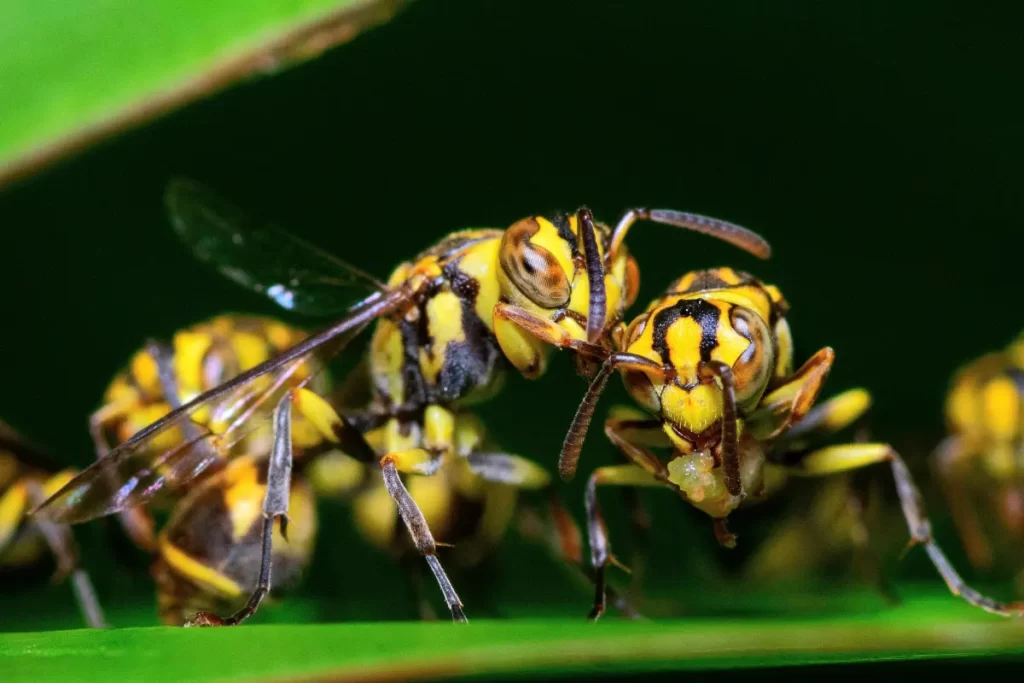
Wasps come in many shapes and sizes. They aren’t just those annoying buzzers on your balcony. Here’s a simple table to help you know more about them. This will make it easier to spot and understand what you might see around.
| Type of Wasp | Behavior |
| 1. Paper Wasp | Builds umbrella-shaped nests. Gentle unless threatened. |
| 2. Yellowjacket | Aggressive. Often seen at picnics. Loves sweets. |
| 3. Hornet | Bigger than most wasps. Protective of their nests. |
| 4. Mud Dauber | Makes nests from mud. Not very aggressive. |
| 5. Cicada Killer | Large but mostly harmless. Hunts cicadas for their young. |
| 6. Potter Wasp | Builds pot-shaped mud nests. Peaceful. |
| 7. Ensign Wasp | Tiny and dark. Eats cockroach eggs. |
| 8. Ichneumon Wasp | Long, thin body. Uses other insects to host their young. |
| 9. Tarantula Hawk | Big and bold. Hunts spiders. Painful sting but not aggressive. |
| 10. Chalcid Wasp | Small, metallic. Affects pests in gardens. |
| 11. Parasitoid Wasp | Lays eggs inside other insects. |
| 12. Braconid Wasp | Tiny, helps control garden pests. |
| 13. Cuckoo Wasp | Shiny, colorful. Lays eggs in other wasp nests. |
| 14. Spider Wasp | Hunts spiders. Bright colored. |
| 15. Gall Wasp | Causes galls on plants where they lay eggs. |
| 16. Scoliid Wasp | Hairy, hunts beetle larvae. |
| 17. Velvet Ant | Actually a wasp! Fuzzy, bright colored, and has a strong sting. |
| 18. Fig Wasp | Tiny, helps pollinate figs. |
| 19. Sawfly | Looks like a wasp, but doesn’t sting. Eats plants. |
| 20. Wood Wasp | Long body. Lays eggs in wood. |
| 21. Tiphiid Wasp | Thin waist. Some types don’t have wings. |
| 22. Aulacid Wasp | Rare. Affects wood-boring insects. |
Each wasp type is unique. While some might bother you, others are helpful. Knowing them can make things less scary. So next time you see one, you’ll know who you’re looking at.
The Attraction: What Draws Wasps to Balconies
The Perfect Home Spot
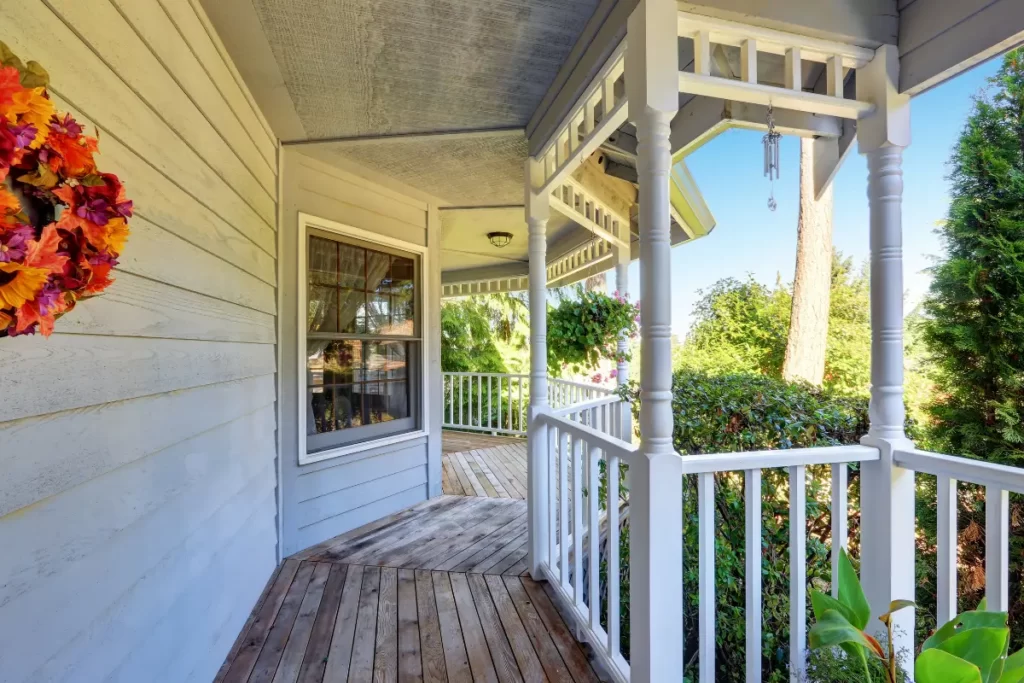
Everyone needs a place to live, right? Wasps do, too. And balconies can look like the best place to build a home. Think about what you want in a house. A quiet place? A safe corner? Maybe somewhere high up where there’s less noise? That’s what balconies offer to wasps.
When wasps want to make a nest, they look for hidden spots. Places where rain can’t wash their home away. Places where big animals (like humans) won’t bother them. A balcony has many such corners. Under the table, behind plant pots, or even along the roof edge. These spots are like cozy rooms for wasps. So, they think, “Why not build here?”
Warmth and Sunshine

Balconies often receive a good amount of sunshine, making them warm and inviting. Wasps, just like us, love basking in the sun, especially during cooler days. The warmth not only gives them comfort but also helps them save energy.
For a wasp, a sunlit balcony is like a perfect beach vacation spot. The warmth ensures they can stay active without using too much of their energy. It’s a place where they can rest, recharge, and feel good.
Plus, warmth is essential for their young ones. If a wasp finds a warm balcony, it might think, “This is a great place for my babies to grow up!” Just like how we might enjoy sunbathing on a warm day, wasps love soaking up that sunlight on a cozy balcony.
Few Natural Predators
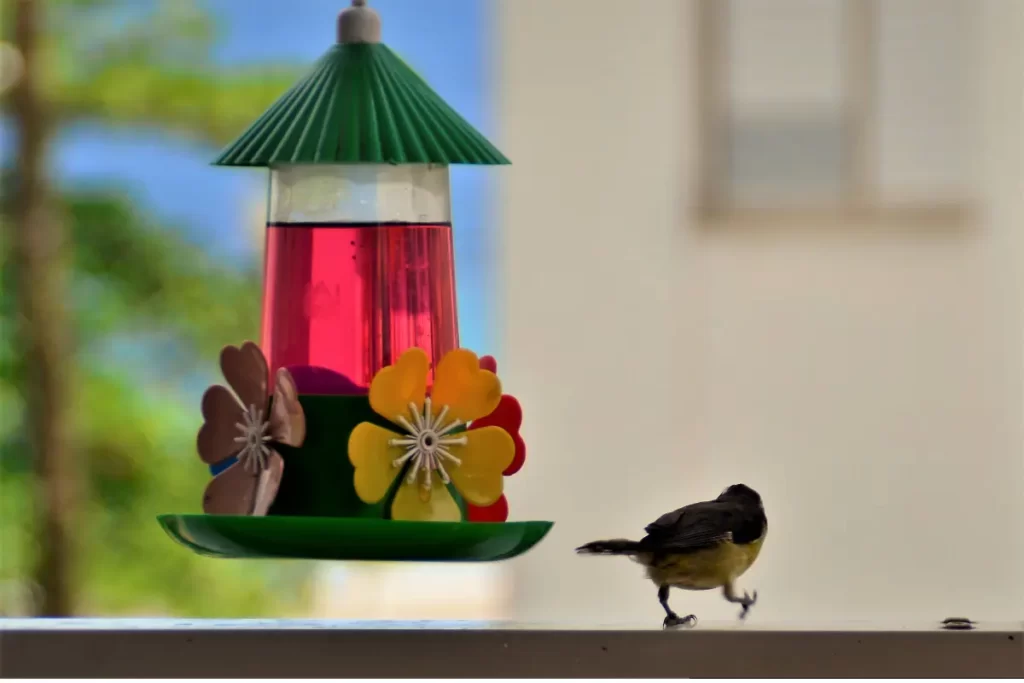
Going to a place where nothing bothers you. It’s peaceful and safe, right? That’s how many balconies feel to wasps. Higher up from the ground, many balconies are out of reach for many of the wasp’s natural enemies. Creatures like birds, spiders, or even some mammals that might hunt or disturb wasps often have limited access to these elevated spaces.
For a wasp, a balcony feels like a secure hideout. It’s like finding a hidden treehouse in the woods. Fewer threats mean they can relax, build their nests, and raise their young ones without constant worry. It’s all about feeling safe and undisturbed. And if a wasp finds such a peaceful place? They’ll want to settle down and invite their friends too.
A Shelter From the Elements
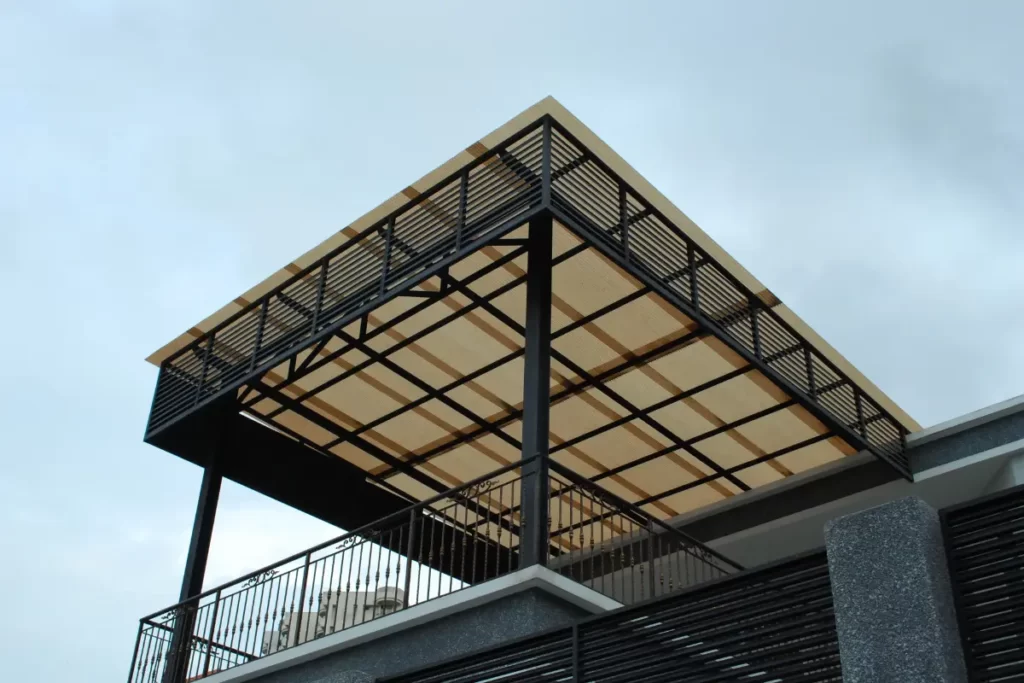
Balconies, with their overhangs and structures, provide a natural protective shield against weather extremes. Whether it’s the scorching midday sun, heavy rain, or even gusty winds, a balcony offers refuge.
For wasps, finding such a shelter can be like discovering a cave while hiking. Not only does it protect them from direct weather disturbances, but it also offers a stable environment for building nests.
If there’s a little corner shielded from the elements, it’s gold for a wasp. Think about it: Would you prefer building your home on open ground exposed to rain and wind or under a protective roof? Wasps think the same way. A balcony is like a ready-made canopy, ensuring their hard work in building nests doesn’t go to waste.
Human Activity (or Lack Thereof)
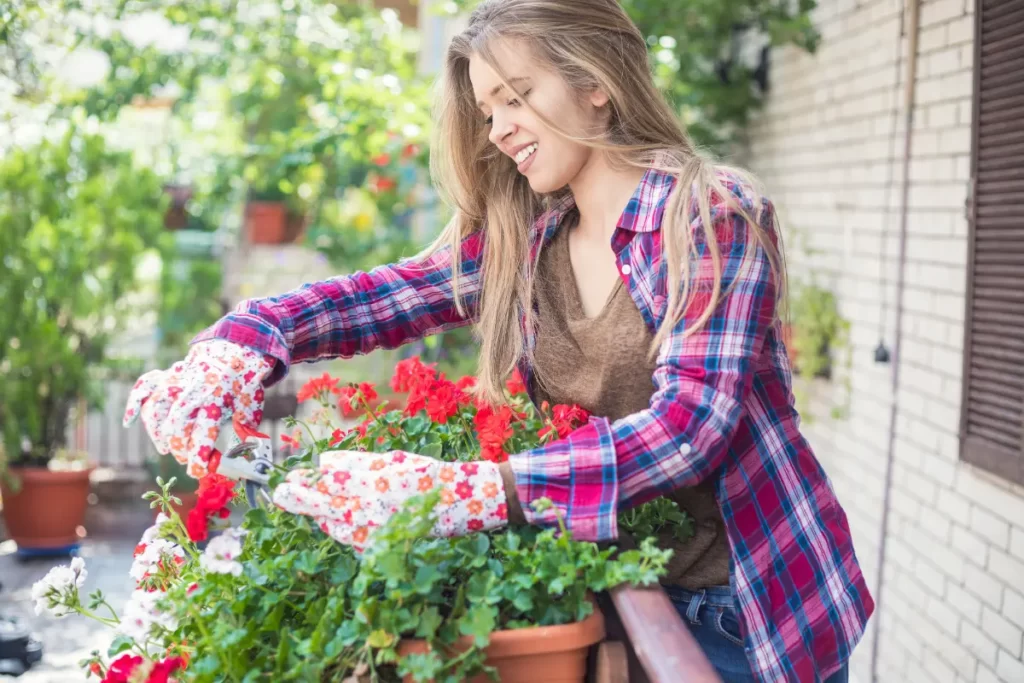
When wasps scout for nesting locations, they look for ‘peaceful’ spots. A less-used balcony is akin to an unoccupied house in the neighborhood. No disturbances, no threats, just peace. It’s like finding a cabin in the woods for a quiet weekend getaway. They can set up a home, raise their young, and go about their daily tasks without being bothered.
The structural protection a balcony offers, combined with the tranquility of a lesser-used space, can be very enticing for wasps. But remember, knowing why they’re attracted can be half the battle. Once we understand these reasons, we’re better equipped to make our balconies less appealing to them.
Fragrant Floral Displays
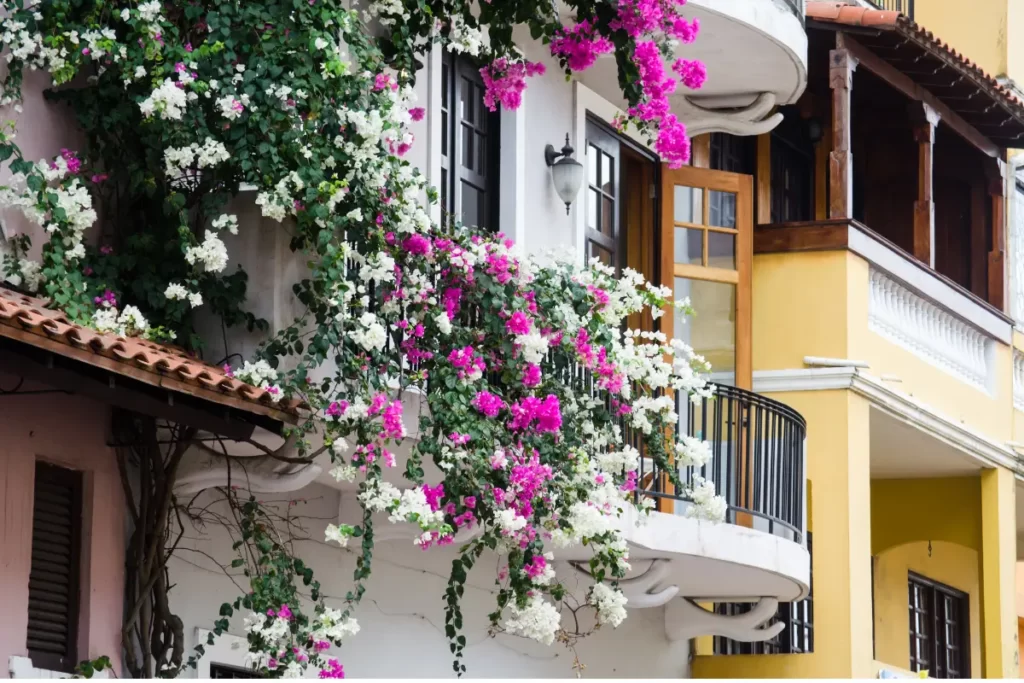
Balconies often house potted plants, floral arrangements, and even herbs that release inviting fragrances. These scents act as natural magnets for wasps.
For wasps, a balcony full of fragrant flowers is like a perfumed invitation card. Flowers not only offer nectar, a sweet treat for them, but their aroma signals a rich feeding ground. Just as we might be drawn to the delicious smell wafting from a nearby cafe, wasps are pulled towards these aromatic delights. Plus, where there are flowers, there might be other insects, offering an added menu option for predatory wasps. In essence, a fragrant balcony is a two-course meal waiting to be enjoyed.
Hidden Crevice Comfort
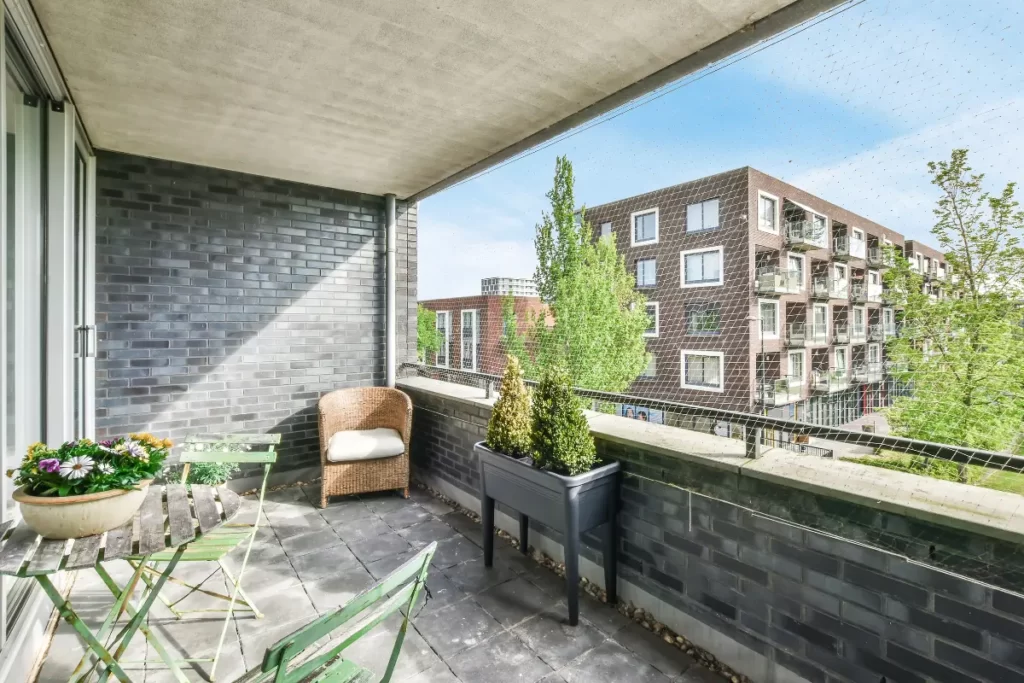
Balconies, with their assorted furniture, plant pots, and decorations, often present multiple hidden crevices perfect for wasp habitation.
To a scouting wasp, a balcony is like a maze of opportunities. The gaps behind planters, the undersides of chairs, the spaces between stacked items, all beckon with the promise of seclusion.
For nesting wasps, finding such a spot is akin to stumbling upon a hidden room in a bustling mansion. It offers them a chance to go unnoticed, to build and expand without much disturbance. Just as we cherish our private corners in a busy house, wasps value these tucked-away niches in the wider open world.
The Allure of Light
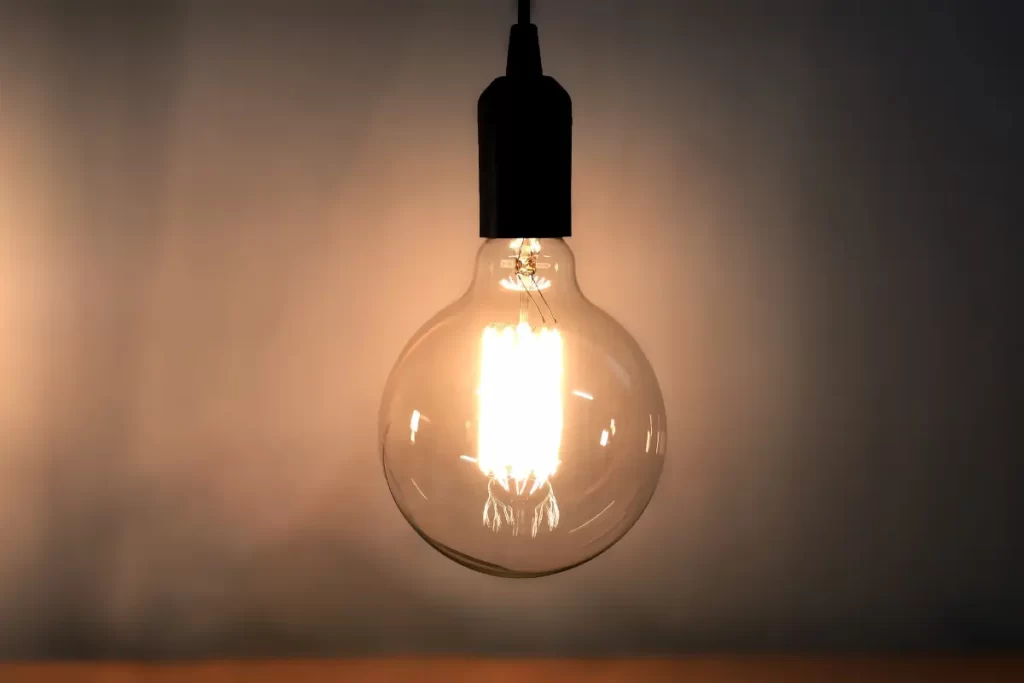
Light has a mesmerizing quality. For wasps, the lighting around our balconies can serve as an unintentional beacon. Evening or night-time lights, especially those that emit a warmer glow, can attract various insects, including wasps.
To a wasp, a lit balcony in the dusk or evening is like a lighthouse on a dark seashore. Many of us enjoy ambient lighting on our balconies, be it through fairy lights, lanterns, or candles. These not only illuminate the space but also attract a plethora of insects. Wasps, being curious creatures, get drawn to these light sources.
It’s as if they’ve found a bustling marketplace in the middle of a quiet town. The presence of other insects (attracted to the light) can also serve as potential prey for some wasp species, making the attraction twofold.
Mimicking Natural Habitats
Remember the comfort of familiar surroundings, like your childhood home or a favorite vacation spot? Wasps, too, look for places that feel familiar and safe. Balconies, with their blend of open spaces, plants, and sheltered corners, often mimic the natural habitats wasps are accustomed to.
For a wasp, a well-decorated balcony can feel like a familiar forest glade or a meadow’s edge. The combination of greenery from plants, open air, and structural elements can remind them of woodland edges, tree boughs, or shrubbery – places they naturally inhabit.
They sense the harmony in such settings, feeling both the freedom of open spaces and the security of shelter. In their eyes, it’s a balanced environment, offering both sustenance and safety.
How To Keep Wasps Away From Balcony To Keep Wasps Away From Balcony
10 Natural Wasp Repellents
1. Peppermint Oil Repellent
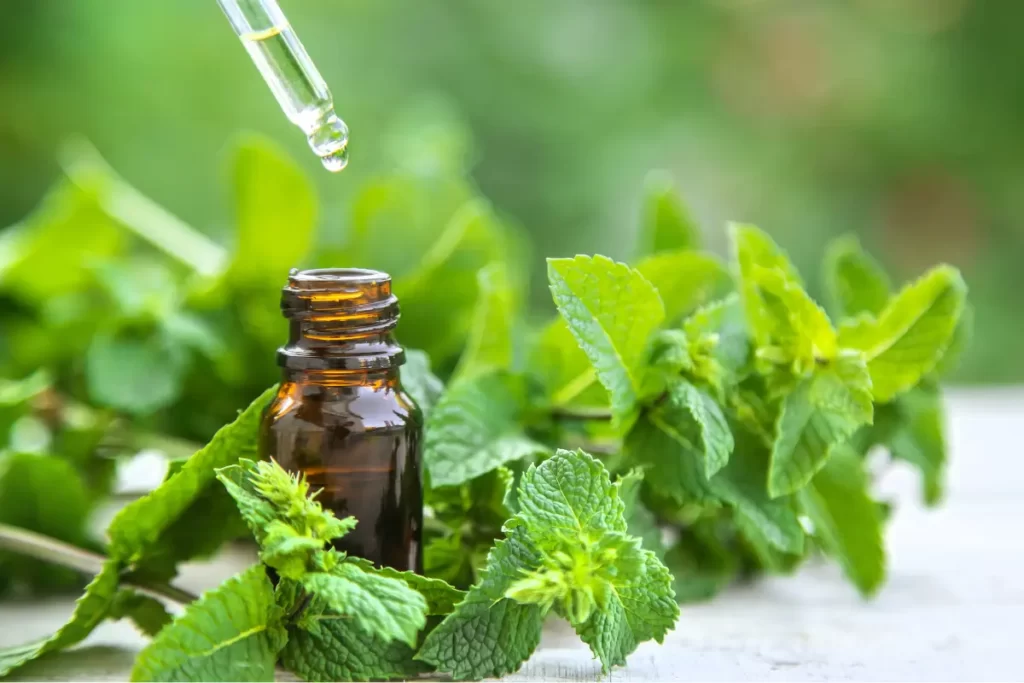
Peppermint oil is a potent natural repellent that wasps dislike. It offers a chemical-free way to keep wasps at bay, making it safe and eco-friendly for balcony use. When applied correctly, peppermint oil can drastically reduce the presence of wasps in outdoor areas.
How to Use Peppermint Oil as Wasp Repellent on Balconies
Steps
1.Buy pure peppermint oil. Many stores or online platforms sell it.
2.Take a spray bottle and fill it with water.
3.Mix in 10-15 drops of peppermint oil for every cup of water.
4.Shake the bottle well to blend the oil with the water.
5.Spray areas of your balcony where you’veyou’ve noticed wasps. Focus on potential nesting spots, like under tables or in planters.
6.Apply the mixture every few days to maintain its effectiveness, especially after it rains.
2. Lemon and Clove Repellent
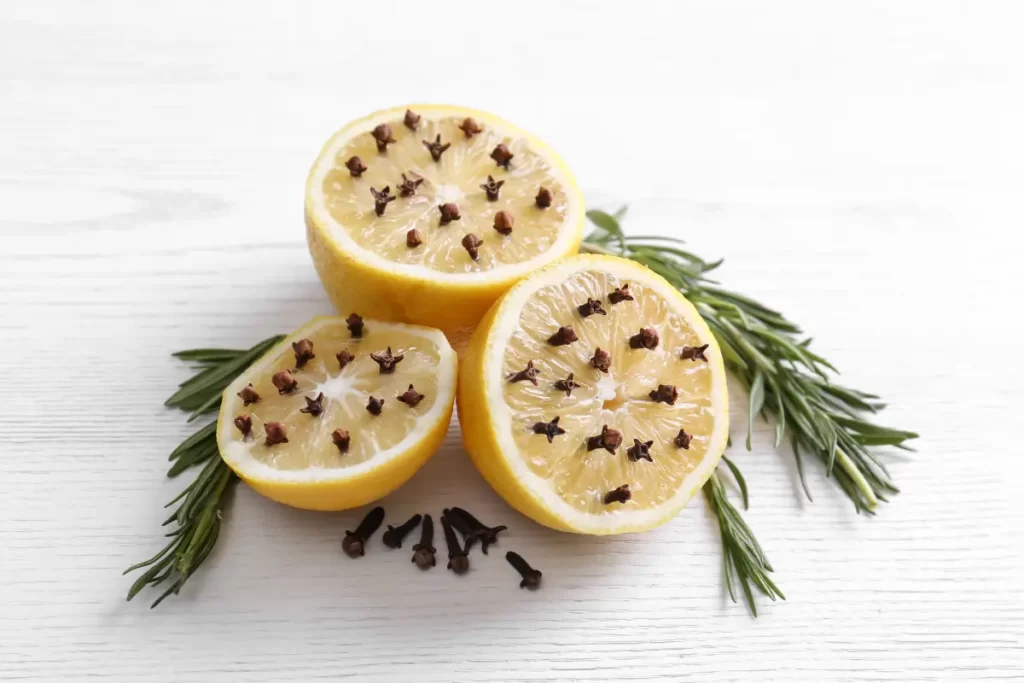
Combining lemon and cloves creates a scent barrier that deters wasps. The strong aroma from this mixture is unappealing to wasps, making it an excellent natural repellent. Placing this on your balcony can prevent wasps from settling or coming near.
How to Use Lemon and Clove as Wasp Repellent on Balconies
Steps
1.Get a fresh lemon and slice it in half.
2.Push 10-12 cloves into each lemon half. Make sure the clove buds are visible.
3.Set the lemon halves on plates or shallow dishes.
4.Position these dishes around your balcony, especially in areas where you’veyou’ve seen wasps.
5.Monitor the lemon halves and replace them once they start to dry out or lose their fresh scent.
3. Vinegar Spray Repellent
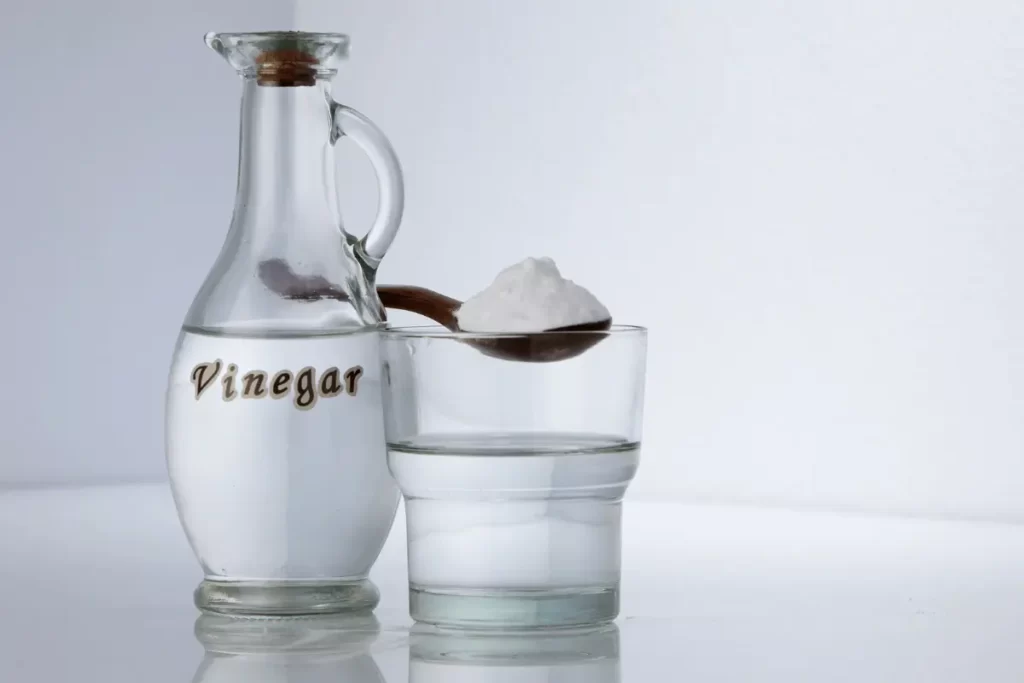
Vinegar, with its strong acidic smell, can be an effective repellent against wasps. The scent is off-putting for these insects, making it a natural way to keep your balcony wasp-free.
How to Use Vinegar Spray as Wasp Repellent on Balconies
Steps
1.Get white vinegar from your kitchen or local store.
2.Fill half a spray bottle with water.
3.Fill the other half with white vinegar.
4.Close and shake the bottle to mix the solution.
5.Spray this mixture on areas of your balcony where wasps are frequent. Be sure to cover corners, railings, or plants.
6.It’s important to reapply every couple of days, and after rainfall to ensure consistent protection.
4. Soap Water Spray
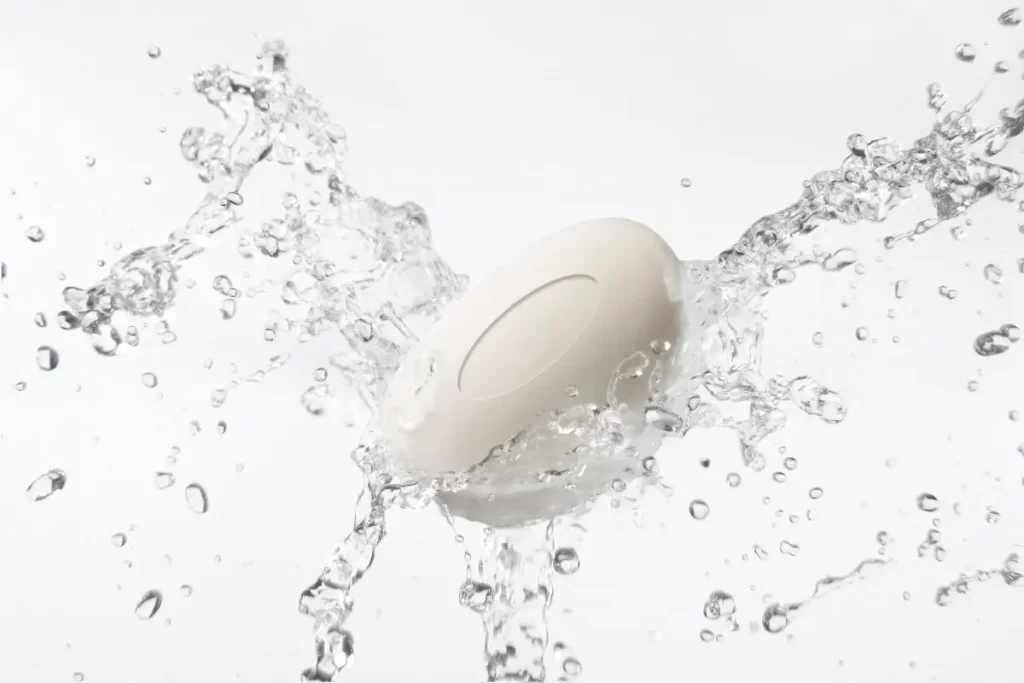
A simple mixture of soap and water can also deter wasps. The soapy water can break down their exoskeleton, making the environment hostile for them.
How to Use Soap Water Spray as Wasp Repellent on Balconies
Steps
1.Choose a liquid dish soap from your kitchen.
2.Fill a spray bottle almost full with water.
3.Add a generous squirt of dish soap to the water.
4.Shake the bottle gently to ensure the soap mixes well without creating too many bubbles.
5.Liberally spray the soapy water on your balcony, paying attention to places where wasps might land or nest.
6.Spray every few days for maintained effectiveness. After a rain, reapply the mixture.
5. Cucumber Slices

Cucumbers have a naturally occurring chemical that repels wasps. The fresh aroma and the chemical content make it a simple yet effective deterrent, especially in balcony areas.
How to Use Cucumber Slices as Wasp Repellent on Balconies
Steps
1.Buy fresh cucumbers from your local grocery store or market.
2.Slice the cucumber into thin pieces.
3.Spread the slices evenly around the balcony. Place them on plates or directly on surfaces where wasps often appear.
4.Replace the cucumber slices once they dry out or appear shriveled, ensuring a continuous fresh aroma.
5.Dispose of old slices in compost or as per waste management guidelines.
6. Eucalyptus Oil
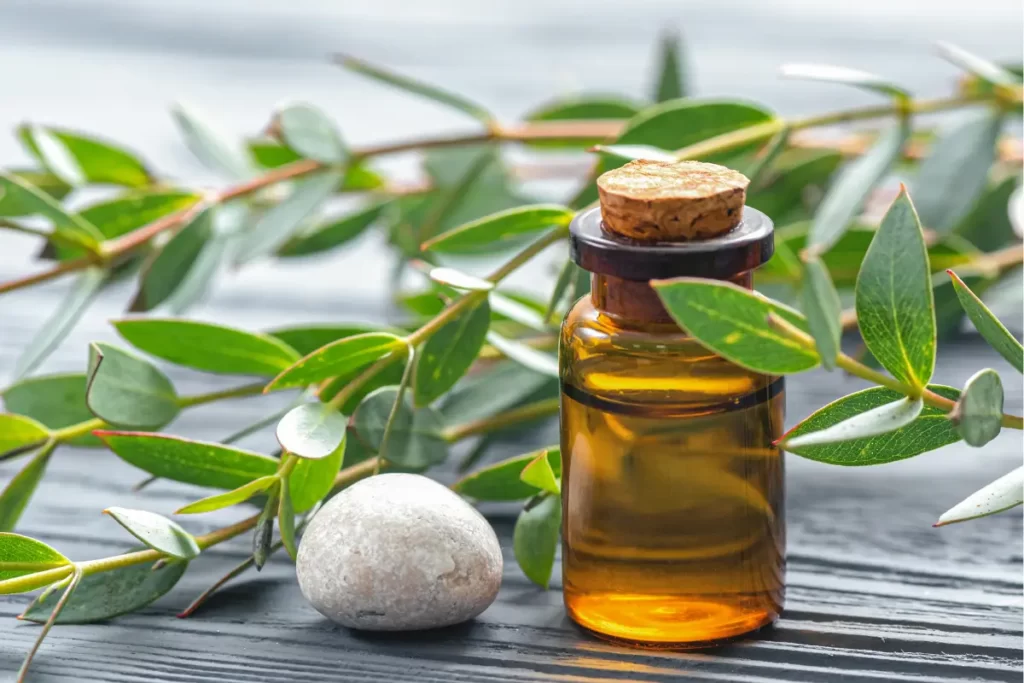
Eucalyptus oil carries a potent scent that most wasps find unappealing. By leveraging this natural essential oil, you can create an environment on your balcony that keeps wasps at a distance.
How to Use Eucalyptus Oil as Wasp Repellent on Balconies
Steps
1.Purchase pure eucalyptus oil, available at health stores or online platforms.
2.Get a clean spray bottle and fill it three-quarters full with water.
3.Add about 20 drops of eucalyptus oil to the water.
4.Tighten the spray bottle cap and shake the mixture well.
5.Mist the eucalyptus solution over your balcony, focusing on areas with high wasp activity or potential nesting sites.
6.Reapply the solution every few days and after any rain to maintain its deterrent effect.
7. Basil Plant
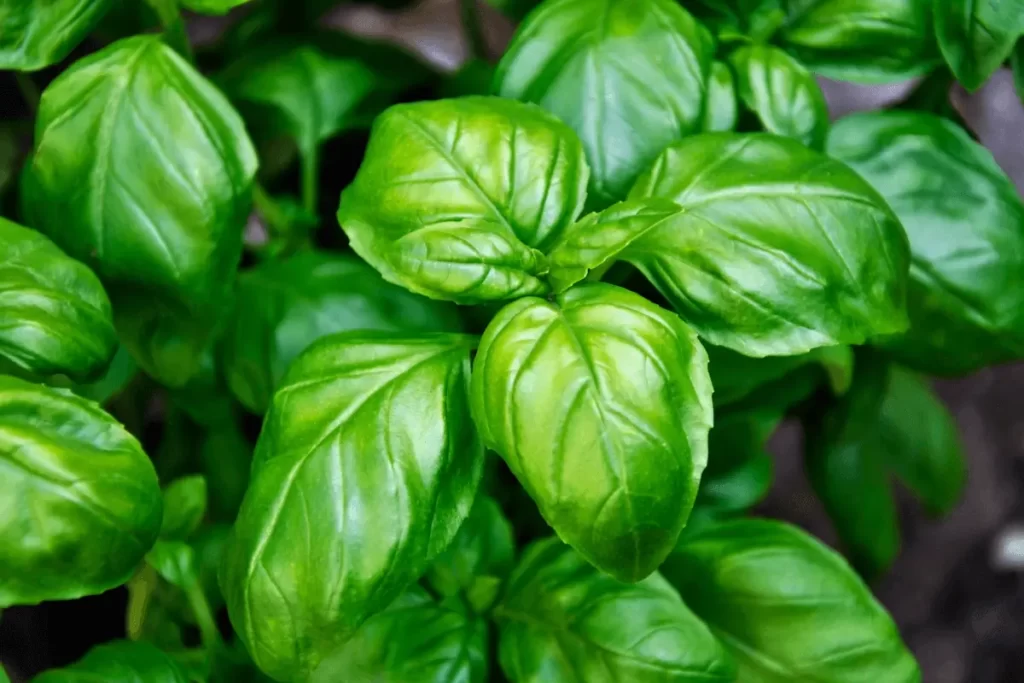
Basil isn’t just a flavorful herb for your dishes; it also acts as a natural wasp repellent. The aroma that basil emits is unattractive to wasps, making it a handy plant to have on your balcony.
How to Use Basil as Wasp Repellent on Balconies
Step
1.Purchase a basil plant or seeds from a local nursery or garden center.
2.Plant the basil in a pot or container suitable for your balcony.
3.Place the basil plant in areas of your balcony where wasps are commonly spotted.
4.Water and care for the basil regularly to ensure it remains healthy and emits its strong aroma.
5.To boost its repellent properties, you can also periodically pluck a few leaves, crush them, and spread them around the balcony.
8. Witch Hazel and Lemon Eucalyptus Oil Spray

Witch hazel is a natural astringent with a distinctive smell. When combined with lemon eucalyptus oil, it creates a powerful repellent spray that wasps dislike.
How to Use Witch Hazel and Lemon Eucalyptus Oil Spray as Wasp Repellent on Balconies
Steps
1.Obtain witch hazel and lemon eucalyptus oil from a health store or online retailer.
2.In a spray bottle, combine one cup of witch hazel with 20-25 drops of lemon eucalyptus oil.
3.Seal the bottle and shake vigorously to mix the solution properly.
4.Spray the mixture generously across your balcony, targeting places where wasps might build nests or frequently visit.
5.Repeat the spraying process every 2-3 days for optimal protection, especially after rainy weather.
9. Fresh Garlic
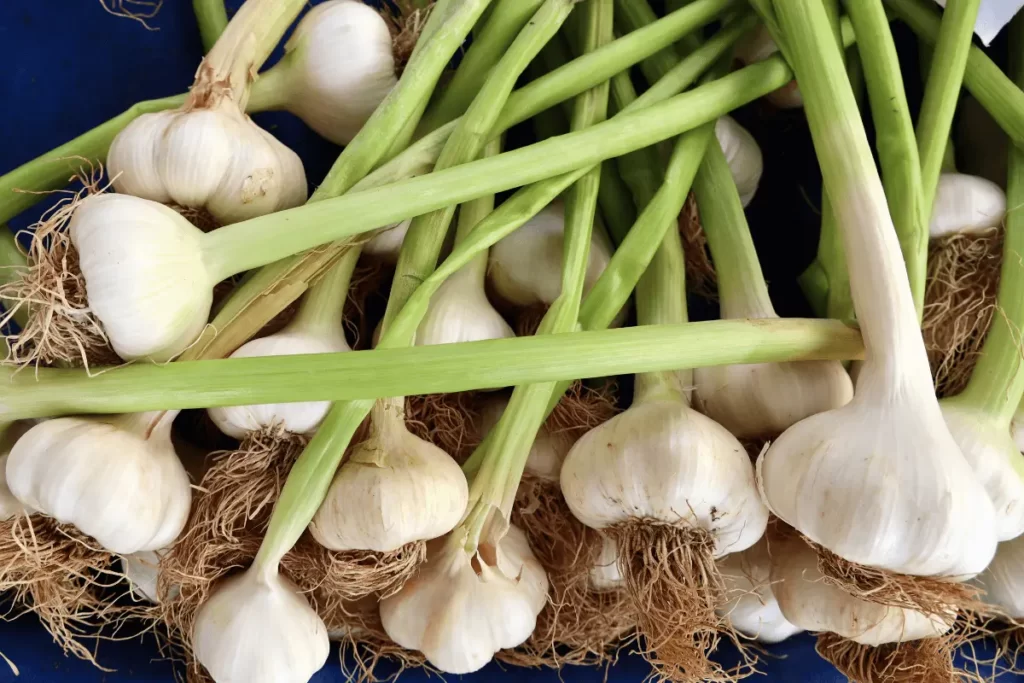
The strong scent of garlic isn’t just off-putting to some humans; wasps also find it very unpleasant. Using garlic can be an easy and organic way to deter wasps from making a home on your balcony.
How to Use Fresh Garlic as Wasp Repellent on Balconies
Steps
1.Purchase fresh garlic cloves from a local store or market.
2.Crush a few cloves slightly to release their scent. You don’t need to mash them completely.
3.Place the crushed cloves in small bowls or plates.
4.Distribute the bowls or plates around the balcony, focusing on areas where wasps are frequent.
5.Change out the garlic cloves every 2-3 days or when the scent diminishes.
10. Baby Powder
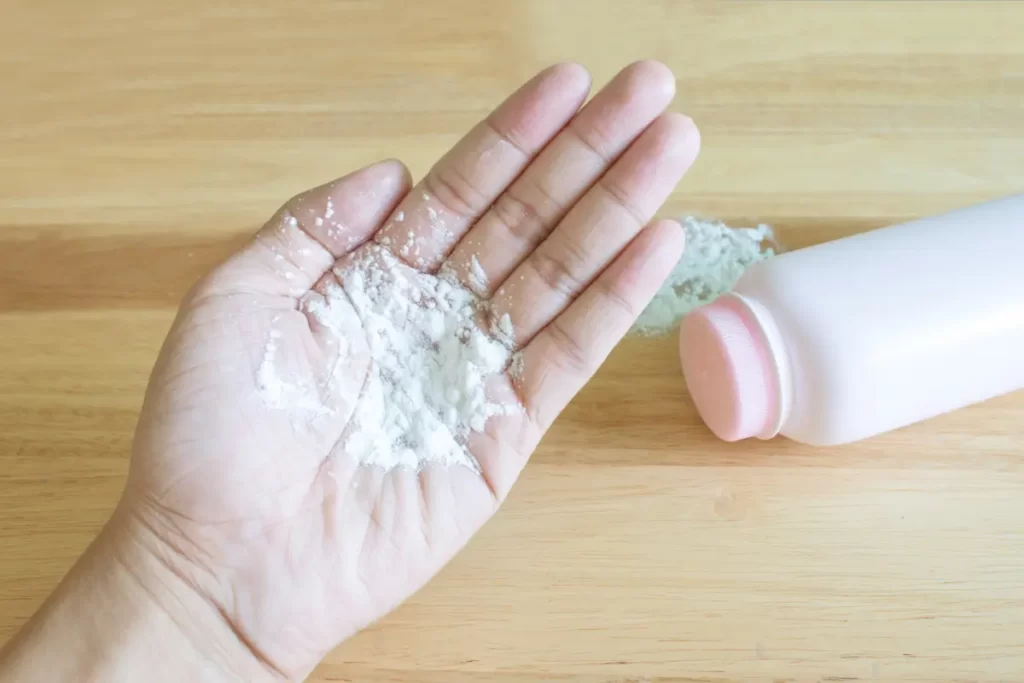
While it’s a common item in households for infant care, wasps don’t seem to appreciate its presence. The scent and texture of baby powder can deter wasps.
How to Use Baby Powder as Wasp Repellent on Balconies
Steps
1.Make sure you have a bottle of unscented baby powder.
2.Lightly sprinkle baby powder in areas where wasps are frequent. This could be around balcony plants, seating areas, or tables.
3.After rain or strong winds, it’s a good idea to reapply the baby powder to maintain its effectiveness.
Top 7 Plants That Repel Wasps To Keep Wasps Away From Balcony
1. Mint Plant
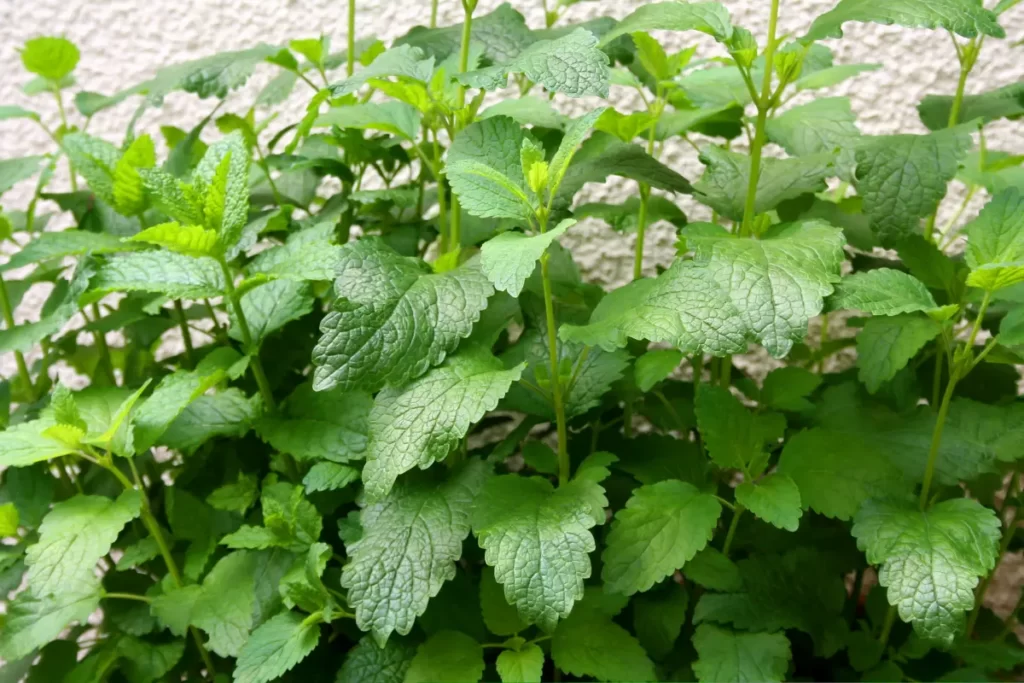
Mint, particularly spearmint and peppermint, is recognized for its robust and refreshing aroma. This aroma, however, isn’t a favorite of wasps. Growing mint can be an effective method to keep these stinging insects away from your balcony.
How to Use Mint on Your Balcony:
- Purchase Plants: Head to a local nursery and choose spearmint or peppermint plants.
- Balcony Placement: Place the plants in pots around your balcony. These plants are suitable for sunny to partially shaded spots.
- Regular Care: Mint plants require regular watering. The soil should be kept damp but not soggy.
- Maintenance: Pruning or pinching the tops off can encourage fuller growth. Plus, doing so can help release the scent further, boosting its repellent qualities.
2. Basil
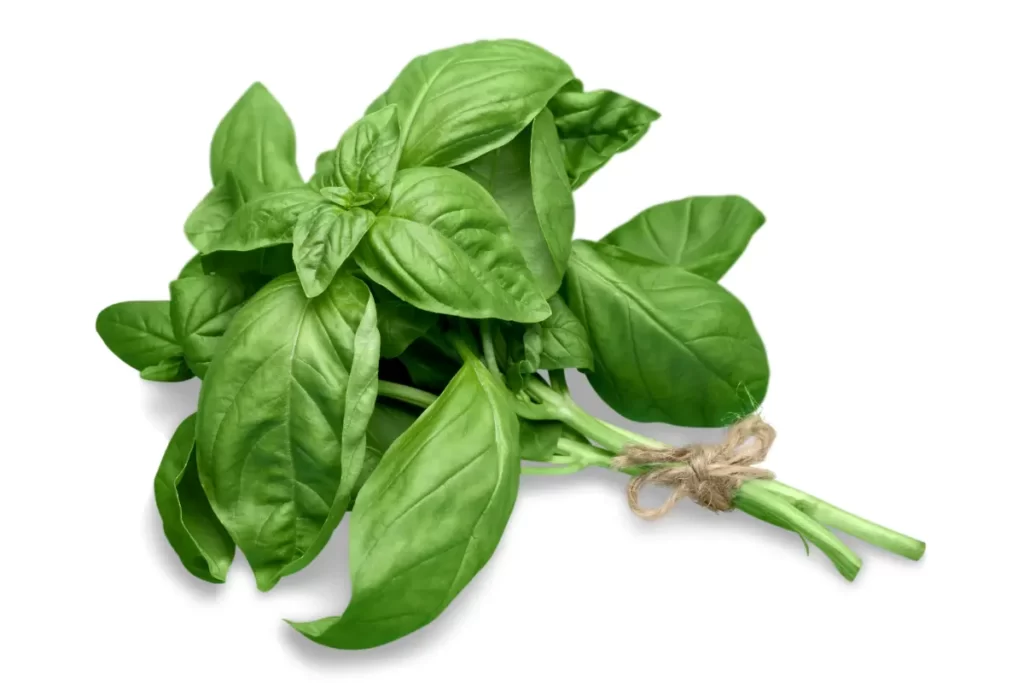
Basil isn’t just for culinary enthusiasts; its robust smell also deters wasps. The plant emits a strong scent, especially when its leaves are pinched or broken.
How to Incorporate Basil on Your Balcony:
- Finding Basil: Local garden centers usually offer basil plants in various sizes.
- Location: Basil loves sunlight. Place it in a location where it’ll receive plenty of it, ensuring it thrives and releases its wasp-repellent aroma.
- Watering: Basil prefers moisture. Regular watering, ensuring the soil is moist but not drenched, is crucial.
- Harvesting: Not only will harvesting the leaves for culinary use encourage new growth, but it will also enhance the aroma around your balcony.
3. Wormwood
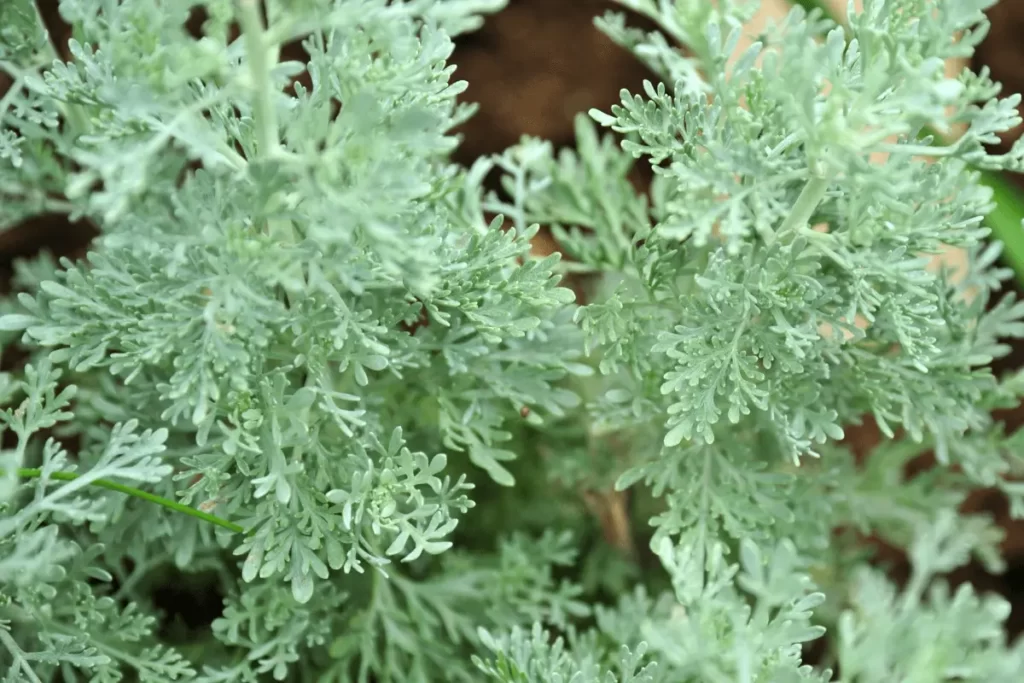
This plant, with its silver-gray leaves, can act as an effective deterrent for wasps due to its strong scent.
Introducing Wormwood to Your Balcony:
- Getting the Plant: Wormwood plants are usually available at specialized nurseries.
- Positioning: Wormwood prefers full sun but can tolerate partial shade.
- Care Tips: This plant is drought-resistant, but occasional watering promotes healthy growth.
- Trimming: Cutting the plant back helps maintain its shape and size, and it can also help release its aroma.
Incorporating these plants into your balcony decor doesn’t just promise a beautiful green space. It also ensures a peaceful, wasp-free environment. Remember, even with these plants, if there’s an increase in wasp activity or you find a nest, it’s always safer to contact professionals.
4. Lemon Balm
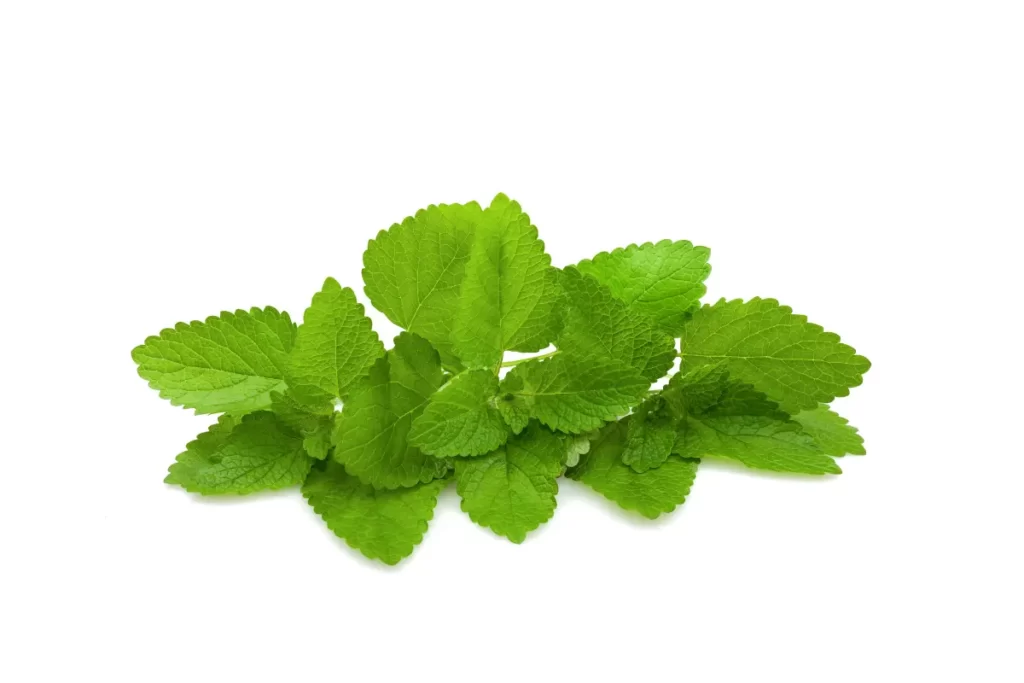
Lemon balm is a green herb with a lemony scent, and it’s a favorite for many garden enthusiasts. But for wasps, this scent isn’t so inviting. Having lemon balm on your balcony can be a simple way to naturally discourage these unwanted visitors.
Using Lemon Balm on Your Balcony:
- Buying the Plant: Most local garden stores will stock lemon balm. It’s a popular plant known for its many benefits, including its ability to deter wasps.
- Choosing a Spot: Find a place on your balcony where the plant can get a good amount of sunlight. It can tolerate some shade but prefers the sun.
- Care and Maintenance: Keep the soil around your lemon balm moist but not waterlogged. It’s also a good idea to trim it regularly, as this can encourage growth and release more of its lemony scent into the air.
- Bonus Tip: Apart from deterring wasps, you can also use lemon balm leaves to make a calming tea!
5.Chrysanthemum
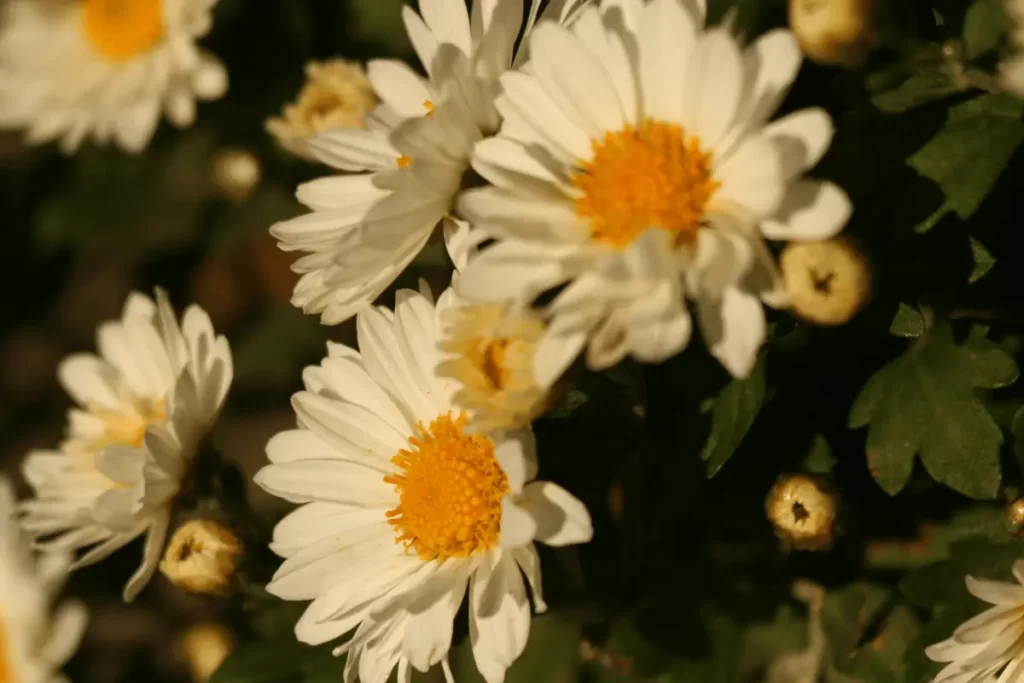
Chrysanthemums, often just called “mums”, are bright, beautiful flowers. Their beauty, however, hides a secret – they’re not liked by wasps.
Incorporating Chrysanthemums on Your Balcony:
- Getting Your Mums: Head over to any local nursery, and you’re likely to find a variety of chrysanthemums. They come in many colors, so you can choose one that fits the aesthetic of your balcony.
- Placing the Flowers: Chrysanthemums love the sunlight. So, find a sunny corner of your balcony to place or plant them.
- Caring for Chrysanthemums: Water them regularly, but avoid overwatering. Make sure the pot or planter has good drainage.
- Keeping Them Blooming: To have them bloom for longer, remove faded flowers. This will also help in enhancing the plant’s wasp-repelling properties.
6.Marigolds
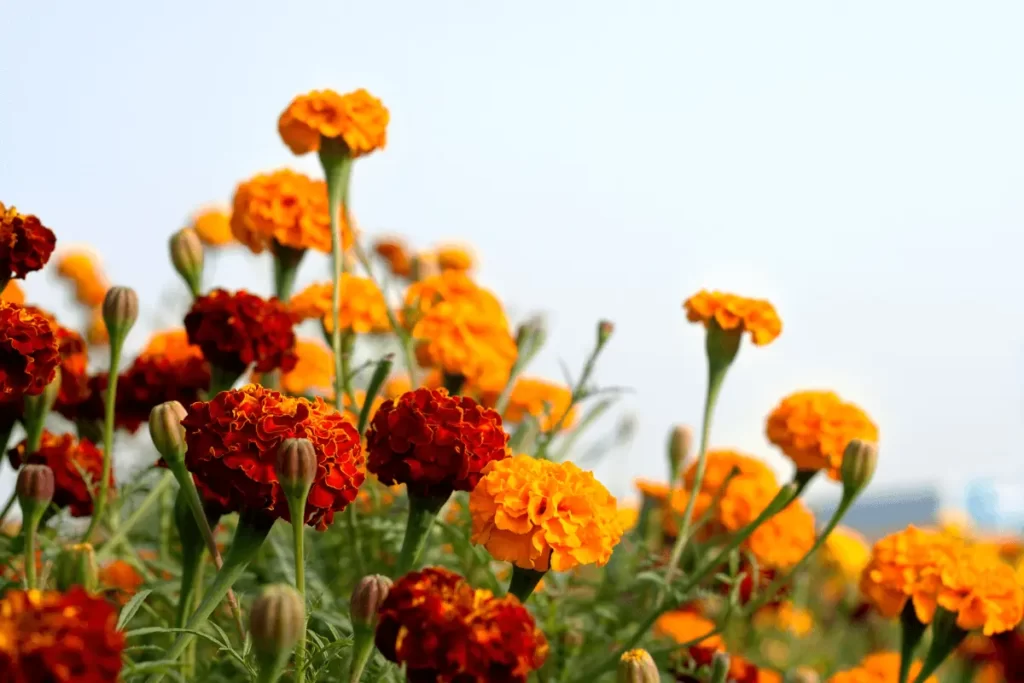
Marigolds are cheerful plants with golden hues that can brighten up any space. But more than just their aesthetic appeal, marigolds possess a unique scent that is often off-putting to wasps.
Using Marigolds for Wasp Control on Your Balcony:
- Acquisition: Marigolds are easily available at most garden centers due to their popularity.
- Placement: While these flowers are adaptable, they bloom best in areas receiving full sun. Position them prominently on your balcony to make the most of their wasp-repelling capabilities.
- Care Instructions: Ensure you water them regularly, but be wary of overwatering. They prefer well-drained soil. Occasional pruning might be necessary to keep them looking their best and to encourage new growth.
- Additional Perk: Beyond repelling wasps, marigolds can also deter certain pests from other plants, making them a great companion plant in any garden setting.
7.Lavender
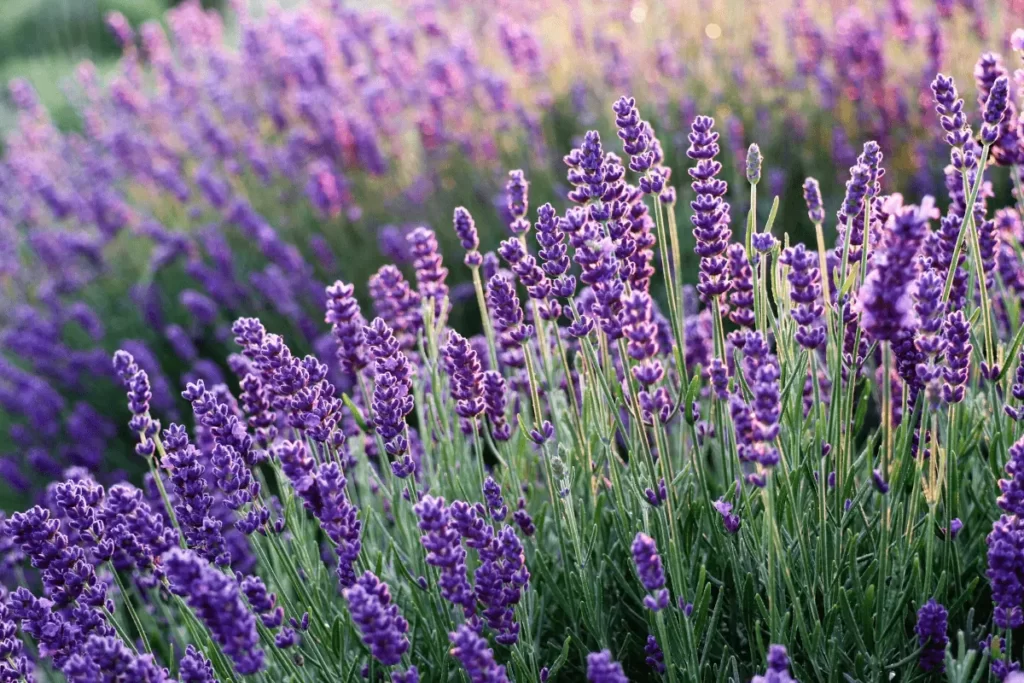
Lavender is known for its relaxing aroma, which many humans love. However, wasps and many other insects don’t share this love for lavender. This makes it an excellent choice for those who want both a fragrant balcony and a space free from wasps.
Incorporating Lavender into Your Balcony Setting:
- Where to Buy: Lavender plants are common and can be found in many gardening stores or nurseries.
- Where to Place: Lavender thrives in sunlight. Make sure it gets plenty of it on your balcony.
- Care Routine: While the plant is relatively low-maintenance, it requires well-draining soil and moderate watering. Overwatering can be detrimental, so ensure the soil is damp but not soggy.
- Multiple Uses: Besides its wasp-repelling properties, you can harvest lavender and use it in various DIY projects, like sachets or essential oils, to benefit from its calming scent.
Chemicals Repellents To Keep Wasps Away From Balcony
1. Wasp Sprays
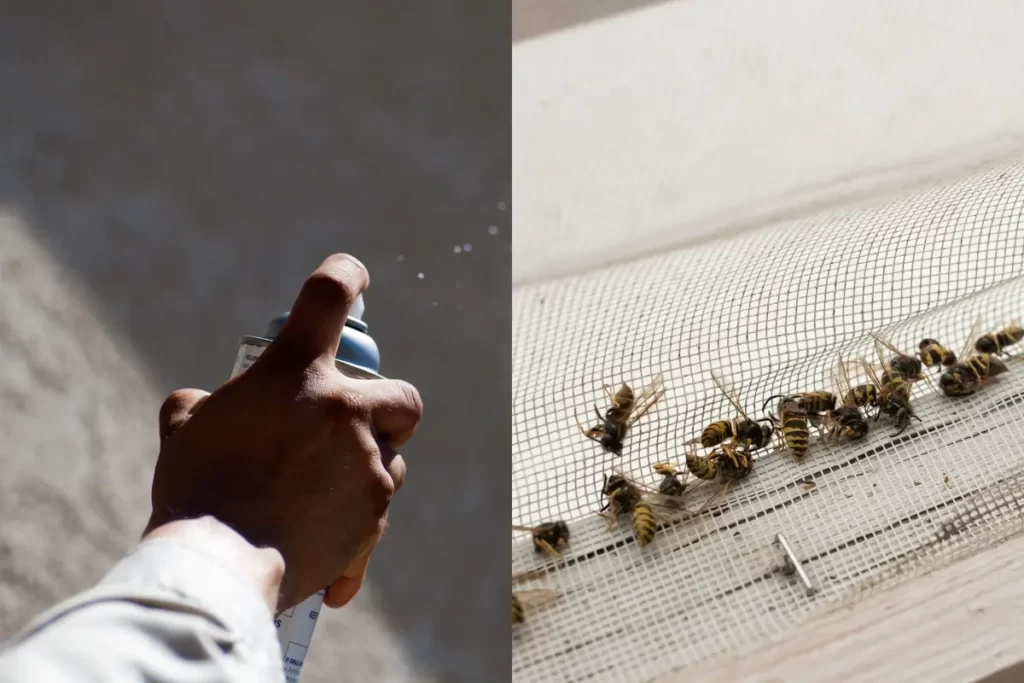
About the Product:
Wasp sprays are popular choices for immediate action against these stinging pests. Available in aerosol form, they are designed not only to repel but also to kill wasps on contact.
Where to Buy:
These sprays are easily accessible. Check your local home improvement stores, supermarkets, or online retail platforms such as Amazon.
Effectiveness:
Wasp sprays work rapidly. Once applied to an area, the active chemicals in the spray act instantly. If you directly spray it on a wasp, it typically neutralizes it within moments.
Safety:
Always read the label before use. Though effective, these sprays contain chemicals. It’s advised to use them in well-ventilated areas. After spraying, avoid the treated area for a few hours, especially if you have respiratory concerns. Keep out of reach of children and pets.
2. Wasp Repellent Gels
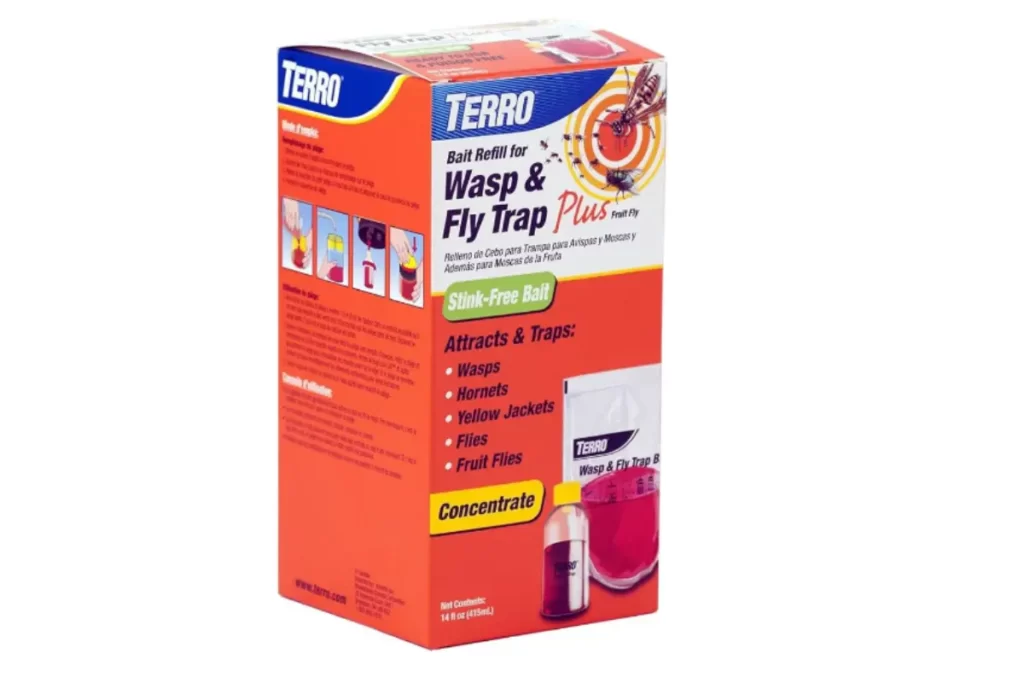
About the Product:
Wasp-repellent gels work by creating a barrier. When applied to surfaces, they discourage wasps from landing or nesting. They don’t kill wasps but act as a deterrent.
Where to Buy:
You can find repellent gels at pest control specialty stores or online e-commerce sites. Brands like Raid and TERRO often carry such products.
Effectiveness:
These gels, when applied correctly, can remain effective for weeks. They reduce the likelihood of wasps choosing your balcony as a nesting ground.
Safety:
Like with any chemical repellent, safety is crucial. The gel is generally safe once dry but should be applied when children and pets aren’t around. It’s non-toxic to humans, but it’s always good to avoid direct contact. Store in a cool, dry place away from kids and pets.
3. Wasp and Hornet Foam
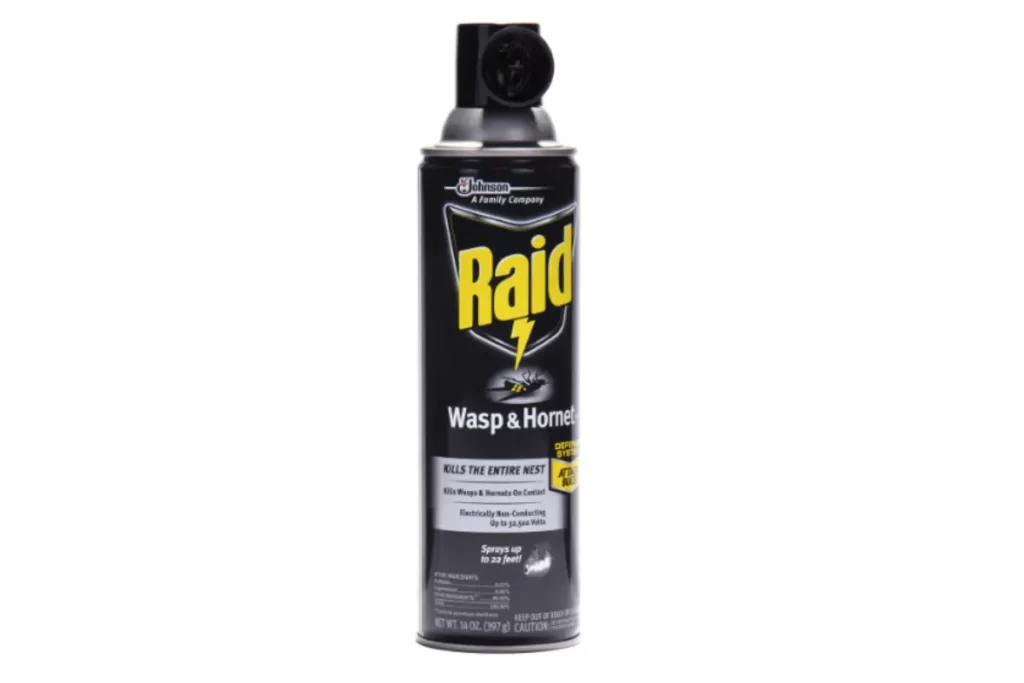
About the Product:
This repellent comes out as a foam, making it easier to target specific spots, especially nests. The foam expands, covering the wasp nests or areas of activity, ensuring thorough treatment.
Where to Buy:
Most local hardware or home improvement stores stock wasp foam repellents. They can also be purchased from online retailers like Amazon Walmart, or specialized pest control websites.
Effectiveness:
The foam formula offers a dual benefit: immediate action on contact and lasting repellent effects. The foam’s consistency ensures that it clings to surfaces, giving prolonged protection against wasps.
Safety:
Safety is paramount. Although these repellents are designed for home use, always wear gloves and eye protection during application. The treated area should be off-limits for children and pets for a few hours after application. Store the canister in a cool, dry place, and keep it out of children’s reach.
4. Wasp Repellent Dust
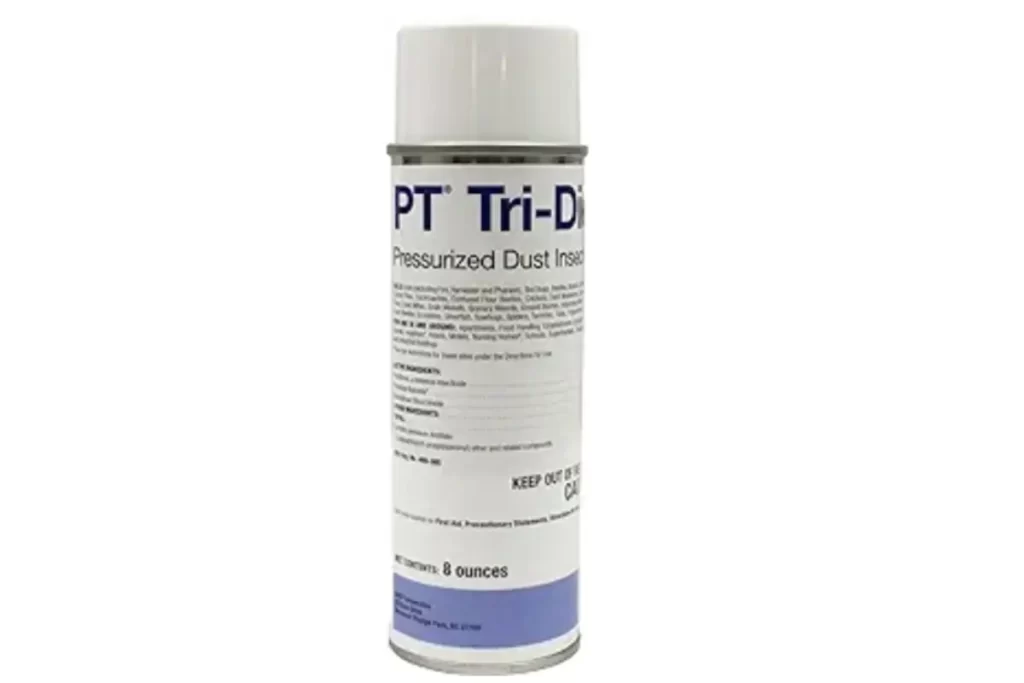
About the Product:
This finely powdered repellent is designed to treat hard-to-reach areas. It works by affecting the nervous system of the wasps, making areas treated with this dust inhospitable.
Where to Buy:
Wasp-repellent dust can be bought from pest control stores or ordered online. Websites that specialize in home and garden products often carry this repellent.
Effectiveness:
Repellent dust has a long-lasting effect. Once applied, its effectiveness can span several weeks, repelling new wasps from setting up residence. It’s particularly potent for treating hidden or internal nest sites.
Safety:
Always use a mask when applying to prevent inhalation. The area treated with dust should be avoided by family members, especially children and pets until the dust has settled. Store the product container securely, ensuring it’s out of the reach of kids and animals.
5. Wasp Barrier Spray
About the Product:
This is a spray solution designed to create a barrier. Instead of killing wasps, it repels them, preventing them from entering the treated areas.
Where to Buy:
Most major supermarkets and home improvement stores will have this in their pest control section. You can also find it on popular online shopping websites such as Amazon and eBay.
Effectiveness:
Barrier sprays are great for preventive measures. By spraying the perimeter of your balcony, you can deter wasps from coming in. Regular application, as per the product’s instructions, ensures a consistent protective shield against these insects.
Safety:
While these sprays are designed to be safe for home use, it’s important to avoid direct inhalation. It’s best to use it in well-ventilated areas. Also, keep children and pets away during the spraying process. Once dried, the area is safe for regular use.
6. Wasp Nest Destroyer Gel
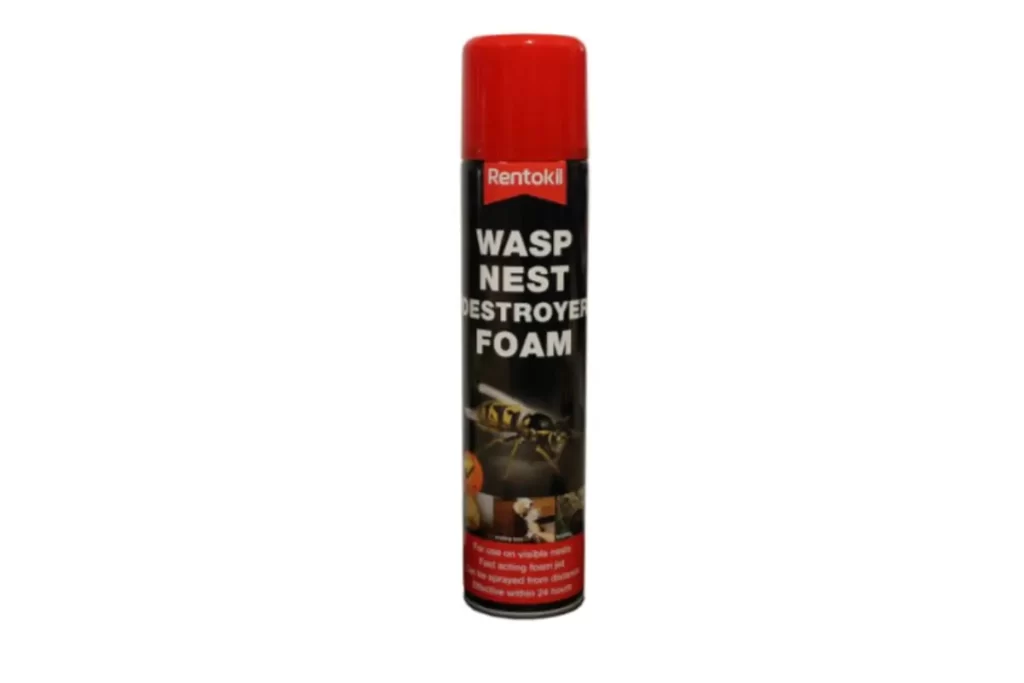
About the Product:
This gel acts fast, targeting wasp nests. The gel formula ensures it adheres to the nest, maximizing its impact on the wasps inside.
Where to Buy:
Your local garden centers and pest control shops should stock this gel. Online stores like Amazon, Home Depot, or Lowe’s are other options to buy from.
Effectiveness:
This destroyer gel works wonders on active nests. Once applied, it can eliminate a wasp nest within hours. It’s particularly useful if you spot a nest early on and want to take quick action.
Safety:
Using gloves during application is a good practice. This ensures you don’t get any gel on your hands. Also, remember to apply the gel during times when wasps are least active, like early morning or late evening. This minimizes the risk of getting stung. Always store the gel out of reach of children and pets.
7. Wasp-Free Aerosol Spray
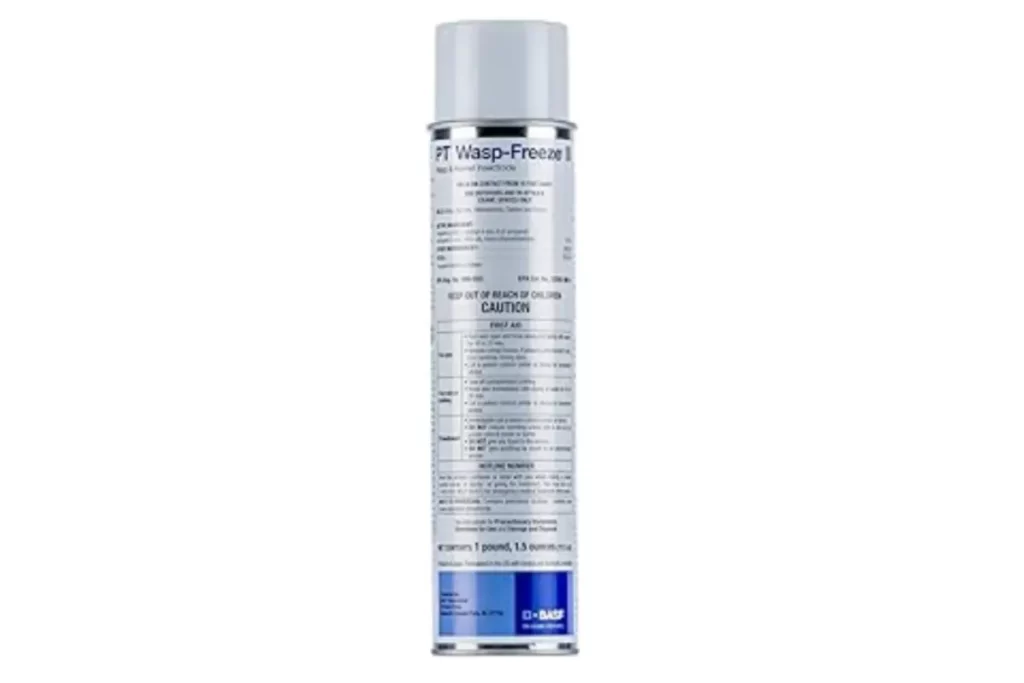
About the Product:
Here’s a user-friendly aerosol spray for you. Aim and spray! It’s made to quickly repel wasps without causing them harm. So, you get to enjoy your balcony without hurting the environment.
Where to Buy:
Finding this spray is easy. Head to the pest control aisle in local supermarkets. If shopping online is more your style, check sites like Amazon or Walmart’s online store.
Effectiveness:
It’s known for quick action. Spray it around your balcony area, and you’ll notice fewer wasps in no time. For best results, spray at least once a week or after a rain shower.
Safety:
Safety comes first. Make sure you spray in an open space to avoid breathing it in. If you have little ones or pets, keep them away during the spray. Once the spray settles, it’s safe for everyone to come out and enjoy.
8. Anti-Wasp Liquid Concentrate
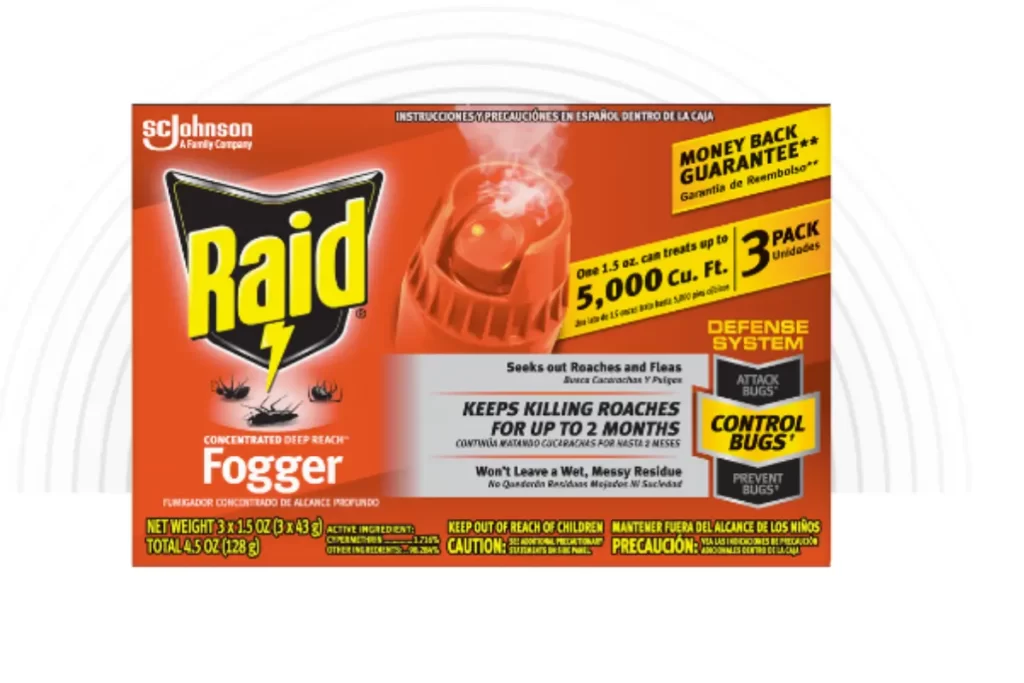
About the Product:
This one’s a liquid. You mix it with water and then spray or spread it around. Its main job? Keeping wasps at bay so they think twice before coming to your balcony.
Where to Buy:
Your nearest gardening or home center is a good start. And, of course, online platforms like eBay or Amazon will have it in stock.
Effectiveness:
Its strength lies in lasting protection. After you apply, it works to repel wasps for a long time. So you won’t need to reapply too often.
Safety:
Always wear gloves when mixing and applying. It ensures you stay safe and avoid skin contact. And, as always, keep the concentration stored away from kids and pets.
Preventative Measures to Keep Wasps at Bay
1. Maintain a Clean Space

One of the most effective strategies to deter wasps is by keeping your balcony neat and tidy. Wasps are not just attracted to places for nesting; they are also on the lookout for food.
Why It Works:
Wasps are scavengers. This means they are constantly searching for food, especially sugary substances and proteins. By ensuring there are no food scraps, open drink containers, or unsealed compost bins, you take away their primary reason for visiting.
Tips to Keep Your Balcony Clean:
- Regularly sweep and mop the balcony floor to remove food particles and drink spills.
- If you eat or drink on the balcony, clean up immediately after.
- Always cover your food and drinks when they’re not being consumed.
- Empty and wash trash cans frequently. Make sure the lids are tightly sealed.
- Remove any standing water, as it can be a source of attraction.
2. Install Wasp Deterrents
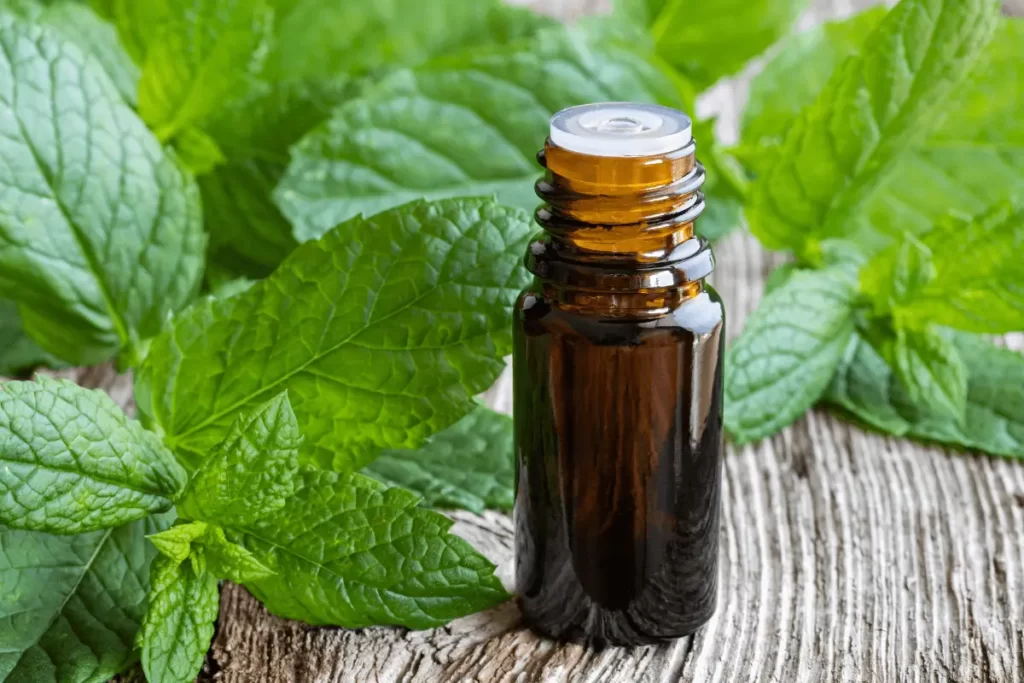
While there are several commercial products available, sometimes the most straightforward methods can be highly effective in keeping wasps away.
Why It Works:
Wasps tend to be territorial creatures. They avoid spaces they believe are already occupied by other wasps. By tricking them into thinking your balcony is already “claimed,” they are more likely to stay away.
Simple Wasp Deterrents:
- Wasp Decoys: These are fake wasp nests you can hang on your balcony. Wasps usually avoid areas where other wasps have already set up nests. Hanging one or two of these can act as a deterrent.
- Peppermint Oil: Wasps dislike the scent of peppermint. By placing peppermint oil in a diffuser or dabbing it on cotton balls and placing them around your balcony, you can make the space less inviting to them.
Regularly check the condition of these deterrents. For example, the cotton balls might need a fresh dab of oil now and then.
While these strategies can effectively reduce the number of wasps on your balcony, remember to always be cautious. If you see a significant increase in wasp activity or locate a nest, it’s wise to contact professionals for safe removal.
3. Use Natural Wasp Repellents
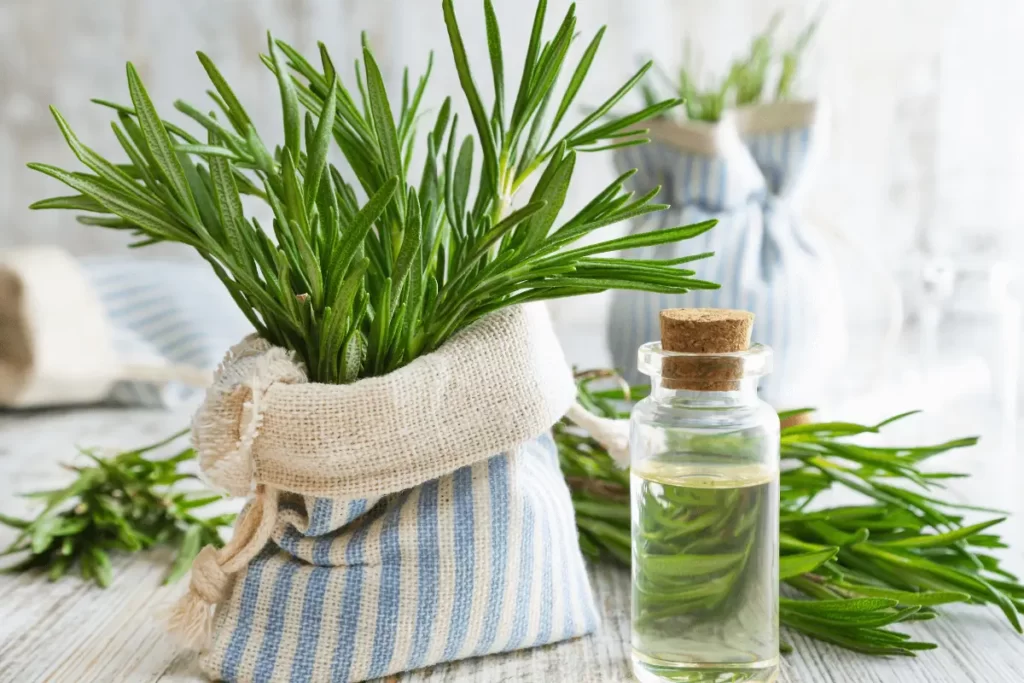
Turning to nature can often provide gentle yet effective solutions. Certain natural scents are unappealing to wasps and can prevent them from making your balcony their home.
Why It Works:
There are certain smells that wasps don’t like. By introducing these smells to your balcony, you can make the space uninviting to them without using harmful chemicals.
Natural Repellents You Can Try:
- Lemon and Clove: Wasps don’t like the strong smell of lemon mixed with cloves. Slice a lemon in half and push around 10 to 12 cloves into each half. Place them on a plate on your balcony.
- Witch Hazel and Eucalyptus Oil: Mix these in a spray bottle and spray around your balcony, especially near the area’s wasps frequently. The blend of witch hazel and eucalyptus is unpleasant to wasps.
Reapply these methods every few days or after any rain to ensure their effectiveness.
4. Install Physical Barriers
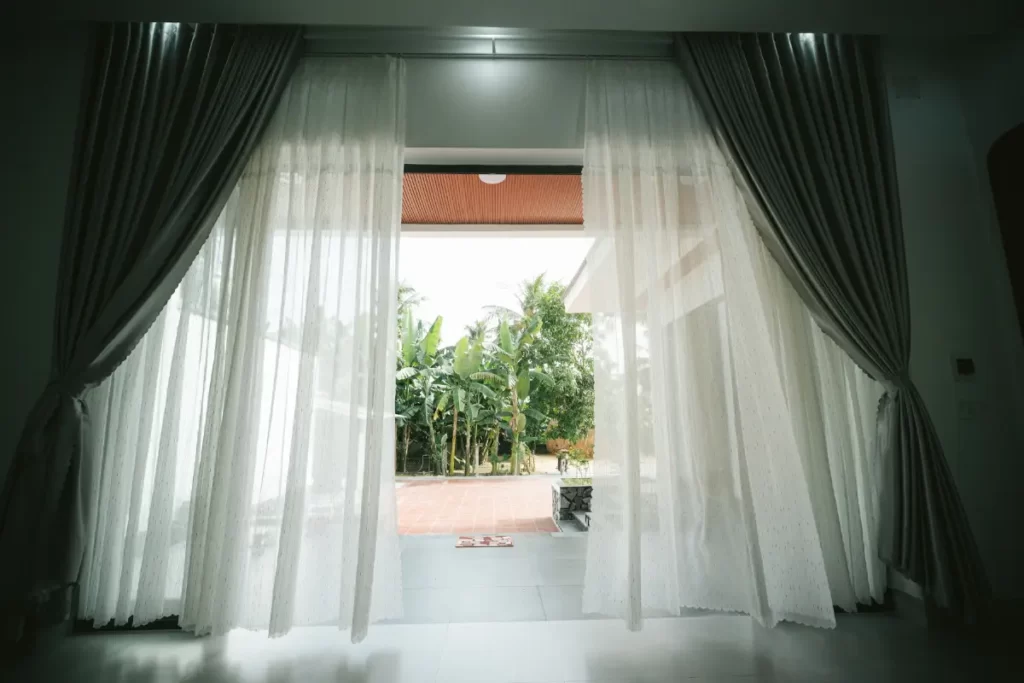
Sometimes, the best approach is to prevent wasps from entering in the first place. Using physical barriers can be an excellent method to stop wasps from accessing your balcony.
Why It Works:
Wasps, like many insects, will follow the path of least resistance. If they find it hard to get into a space, they’re likely to give up and go elsewhere.
Barriers to Consider:
- Fine Mesh Screens: Installing these screens around the balcony can act as a deterrent. They allow you to enjoy the outside view and breeze without letting wasps in.
- Doorway Curtains: These can be made of PVC or other materials. They serve as a physical barrier, making it challenging for wasps to fly in, especially if you’re going in and out frequently.
5. Maintain a Clean and Clutter-Free Balcony

One of the simplest and most effective strategies to deter wasps is by keeping your balcony clean. Wasps are always in search of two main things: food and shelter.
Why It Works:
A clean balcony ensures that there are no food sources available. This means no leftover food particles, no sweet spills, and no exposed garbage. It also ensures there are fewer hiding spots or attractive places to build a nest.
Steps to Maintain a Clean Balcony:
- Regular Cleaning: Schedule a routine cleaning every week. Sweep the balcony, wipe down surfaces, and ensure no food is left out.
- Sealed Garbage Bins: If you have a garbage bin on your balcony, ensure it is sealed and emptied regularly.
- Remove Unused Items: Items that aren’t used often can be stored away. This reduces the potential nesting spots for wasps.
6. Set Up Wasp Traps

Another effective strategy is using wasp traps. These traps are designed to attract wasps and then prevent them from escaping, reducing their numbers around your balcony.
Why It Works:
Wasp traps use attractive baits to lure in wasps. Once inside, the design of the trap keeps them from getting out. Over time, the trapped wasps will perish, and you can empty the trap.
How to Set Up Wasp Traps:
- Buy Ready-Made Traps: There are many commercially available wasp traps. You can hang them in the corners of your balcony.
- Homemade Wasp Trap: Using a plastic bottle, cut the top off and invert it (so it looks like a funnel). Fill the bottom with a sweet liquid like sugar water. Wasps will enter, attracted to the sweet smell, but find it hard to leave.
Remember to place the traps away from areas where you sit or dine to ensure wasps aren’t drawn closer to you. Empty and clean the traps regularly.
Professional Assistance: When to Call In the Experts

Professionals have the right tools and knowledge to remove these safely and effectively. Additionally, if you or a family member is allergic to wasp stings, you shouldn’t take any chances. An expert can handle the problem without putting anyone’s health at risk.
Also, repeated wasp appearances, even after trying multiple repellent methods, indicate that there might be a larger issue at hand. Professionals can identify and solve the root cause of the attraction.
Remember, while DIY methods are cost-effective, they may not always provide a long-term solution. Experts can ensure that the wasps are not only removed but also deterred from coming back.
Conclusion: Enjoy a Wasp-Free Balcony
Having a balcony is a pleasure. It’s a space where you can relax, enjoy the fresh air, and have some quiet moments. However, the presence of wasps can easily disrupt this peace. While wasps play a crucial role in the environment, helping with pollination and controlling pests, their presence in living spaces can be a cause for concern.
By implementing a combination of preventative measures, natural repellents, and occasionally seeking professional assistance, you can keep these buzzing visitors at bay. Remember, it’s always about striking a balance. We need to coexist with nature, but that doesn’t mean compromising our comfort.
By taking informed actions, you can ensure your balcony remains a serene and wasp-free zone, allowing you to fully enjoy the outdoor space of your home.
